#minor character to the main story but a major one to the ex novel
Explore tagged Tumblr posts
Text
Fourier never appeared in the main series, but man, he's actually really funny. Absolutely like Subaru in his behavior but less cringe that stems from realism and second-hand embarrassment. Just friends being friends
Since I got my hands on that EX novel, I'm gonna pitch some moments of him so he's at least remembered if his name is brought up. I'll include some pictures for reference, and won't include the whole thing to avoid spoilers
1. This one can be found on the wiki as is: he fell in love with Crusch at first sight, but the moment she saw him, she threatened him with a knife in his own house—she then proceeded to almost attempt suicide for her mistake
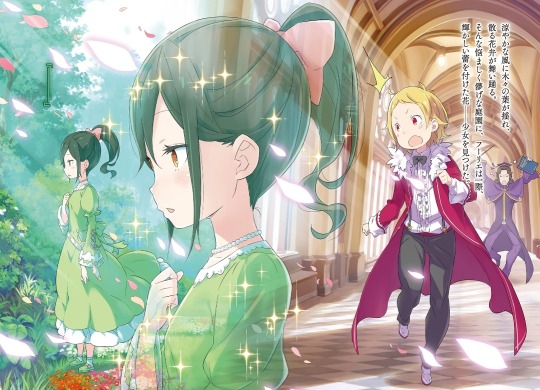
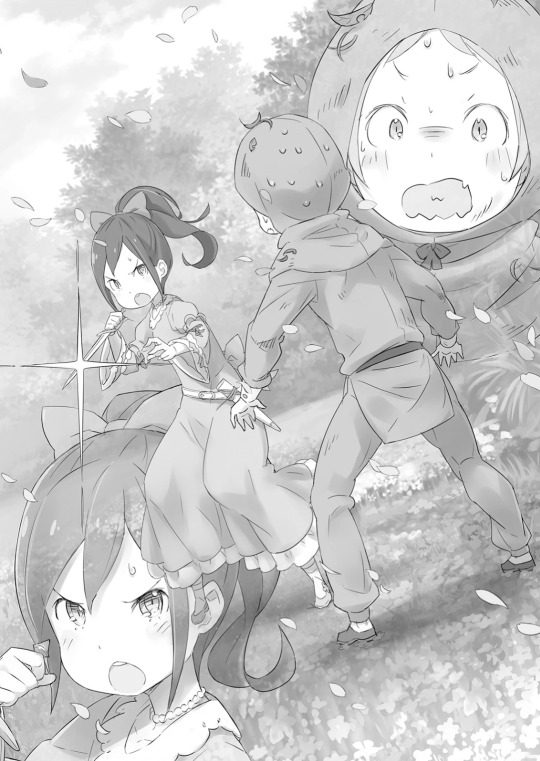
2. He's so much like Subaru. He's loud, brash, in love with a girl at first sight, has small worries that he blows out of proportion unless they're absolutely important and life-changing like impending death, falls to his knees in anime-style sulking when told he's not as manly/strong as he wants to be to the girl he likes...
3. After seeing Crusch, you see how there's a guy chasing him in the first picture? That's his tutor. Fourier proceeded to slap him in the face ("MY EYE!!" screamed in comical fashion), drag him down a hall, and make him hit his head on every column and wall in existence
4. In the second picture, where Crusch holds a dagger, Fourier backtracks over it a lot like Subaru would
Fourier: Who would give their daughter a dagger on their birthday? They've no sense.
Crusch: Your Highness, I asked for this dagger from my father as a gift that day.
Fourier: Yep! Your father's the most sensible man ever! Daggers, wonderful gifts to young girls, they are!
5. That illustration of him and Crusch in a sword fight? He did that so Crusch would wear a dress.
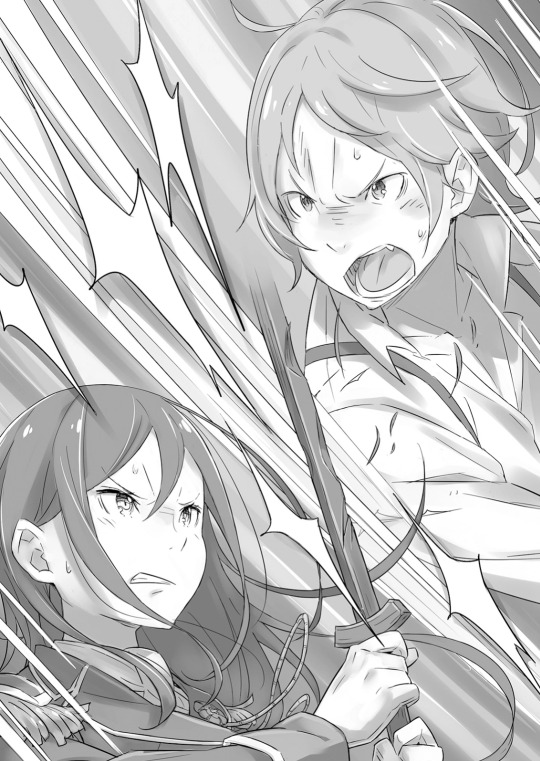
Crusch sees him about to fall over like a shaking fawn, pathetic with trembling legs and supporting himself on his sword. He's exhausted and wanting to pass out or cry, and Crusch is like "Should we stop?"
And Fourier is all "NO!" and charges in with war cries the entire time.
"YAAAAAHHHH! CRUUUSCH! WEAR A DRESSS!!!"
I crap not, that's all he shouted, and it kinda scared Crusch.
"Wear makeup! Like flowers! Wear jewelry! Show me that beautiful smileeee!!! Uwaaaaaa!!!"
That's his motivation. It's hilarious and also sad, because he knows he probably hurt Crusch a lot for not letting her wear dresses. He's so exhausted by the end of it that he literally passes out on the ground after Crusch cedes it's her defeat
6. He didn't know Ferris was a boy. So when he had Ferris pose as his fiancee after Crusch couldn't so he could turn down his marriage prospect,
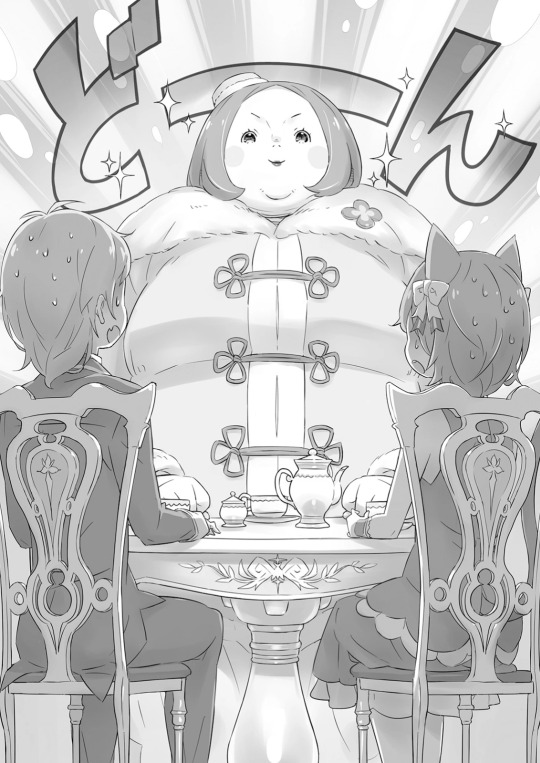
He did so, thinking Ferris was a girl. He only found out afterwards.
Also, before they actually went through with the plan, Fourier was raring to pretend being Crusch's lover, and getting all flustered at the idea. Imagine servant Subaru being all blushy over going on a date with Emilia and wiggling around. Not very different
"M-Me... and Crusch..!!"
"Compose yourself, my prince!"
- Fourier and Ferris, off of memory
7. The castle rumored that Fourier was gay, because he declared he loved Ferris, no matter his gender.
"As long as you're you..!"
Which is really sweet (how Fourier loves him). Still, Ferris worried he hated him after the reveal.
Ferris and Crusch are discussing this new rumor as Ferris is afraid of confronting Fourier after he learned he was a male... then His Highness comes barreling in, basically screaming and crying
"Crusch! Ferris! It's horrible, oh so horrible! I need you two now through the worst struggle of my life! Where are my two trusted people?!"
Because he literally just heard the rumor himself.
I think he was afraid that Crusch wouldn't love him if she thought he was batting for the other team, and that's why he stressed over the rumor? He also feared Crusch not liking him if he got fat
He's so fricken funny and this is just from me skimming the book. I haven't sat down to read it through, but just by skimming, Fourier and Subaru behave so similarly that it's just- my gosh.
Do Ferris and Crusch look at Subaru and think of the prince? When Subaru shouted and disrupted the Royal Selection gathering, and Julius probably saw Joshua, did those two see Fourier?
Granted, Fourier is more wise and composed than Subaru, and probably would've been more graceful about his interruptions, but the shouting of what he wants and thinks when riled up? The "wisdom" (knowledge) that comes out of nowhere, which both Fourier and Subaru have? (Fourier from instinct, Subaru from Return By Death)
Fourier wanted so badly to let Crusch be a woman, and fawned over her beauty and just wanted her to enjoy typical things of women. Subaru kicks his blanket like it's personally assaulting him, just thinking of multiple Emilias as he tries to sleep, and isn't afraid of showing his affection throughout the entire series
On the point of affection, neither of them are afraid of showing it to people they care about. Subaru braids hair, plays with kids, compliments outfits and smiles, Fourier hugs and tells his dreams of futures with his friends and has dances with them, etc.
(They even have the penchant of acting like things are fine to Julius by not telling him anything before they literally collapse in front of him [Fourier in a carriage, Subaru being possessed], leaving Julius to deal with them when things go south)
(On that note, it's sweet that Julius always calls for Ferris when someone is hurting, because he knows who can help best)
Anyway, Fourier? Funny kid. Resembles Subaru. Parallels can probably be drawn from them. Is important to the development of Crusch and Ferris, so it's not bad to remember him. The history of the royal family should come into play when regarding the Archbishop of Lust and Felt, too.
#spoilers#fourier lugunica#a fun kid#has the potential for a lot of analysis#crusch karsten#ferris argyle#felix argyle#ferris#rezero#re:zero#re zero#EX Novel 1#(i think)#before Subaru's arrival#minor character to the main story but a major one to the ex novel#not much else for me to add on to that i can think of#julius juukulius#images#since i skimmed it i might be wrong that subaru and fourier are similar#but i still think parallels can be drawn. like RBD and the intuition of the royal family#maybe felt has that? she chose tonchinkan for their talent?#unsure i cant remember why she took them in#natsuki subaru#lugunica#royal family#ex novel#anyway
93 notes
·
View notes
Note


You guys just can’t pick a side can you?
This is one of the most idiotic asks I've been sent and someone once told me if a character is designed to appeal to children that character themselves must be a child. However I will still try to respond to explain why this is not the same situation in a calm manner.
The fnaf novels tied into the games in a way where in my opinion you don't need them to understand the lore, The mimic is a pretty simple concept a robot that copies voices the only thing you miss out on with the books is the backstory which I don't think is super vital but could also be explored in a future game so I don't mind the books being canon. Batim back when DCTL had first come out only revealed a major character's identity in that book. That is bad and I don't agree with it. But I am also against retconning the books entirely since it means said character now has No identity. I am literally not the kind of person this is meant to address...
HOWEVER
The bendy books are beloved, they have great stories, characters and add fun things to Bendy's lore that doesn't exist without them. I personally believe they're not only great by video game novel standards but great by general horror novel standards as well.
Most important though, is that Bendy is a "character-focused" series, but despite this the games lack any kind of interesting characterization, most of the cast don't have established relationships and the ones that do are often relationships that are minor and unimportant. The cast ranges from basically cardboard cut outs who had interesting ideas that were not executed well to basically having nothing interesting about them. See how Henry the main protagonist of the first game BATIM does not have much of a personality nor reacts to much through out the game, thus making it hard to really feel for what he is going through not to mention how he doesn't seem to have been friends with anyone he's encountered.
The books added substance to characters who needed it. They gave Joey a compelling backstory, motivation and a peak into how his mind worked via Illusion Of Living which filled in holes and gaps in Joey's story that the games left wide open despite the fact he's a main villain and very important. His character is vital to BATDR & BATIM, as it is his actions that literally caused all of this besides Henry who could arguably also be said to have started this when he left. The games don't tell us much about either of them. Not to mention unlike Scott who I believe never fully stated whether or not the books were canon, the bendy devs DID say the books were canon until recently which is confusing and frustrating for theorists who kept up with them to be able to know the lore and now feel cheated.
But now without the books Bendy has even more holes in its story, we now don't know who Boris is, why Thomas was suddenly being ominous and evil in BATDR [In The Lost Ones he was shown to be morally grey however since those aren't canon anymore, it seems Thomas just suddenly turned evil bc he felt like it], not to mention Joey now lacks a backstory and everything a lot of fans loved about the way he was written in the books has been thrown away. A lot of relationships, interesting traits and cool ideas about Bendy's narrative and its characters are now suddenly gone leaving us with once again the cardboard cutouts that the games claim are well-written characters. Kress is just a way better writer than the Bendy devs so to see her work tossed aside when she had been told it was canon to this franchise she liked feels offensive and hurtful.
This was only made worse by the fact this news only truly came out in response to multiple instances of whitewashing characters who were previously thought to be people of color in the graphic novel for Dreams Come To Life which itself also was just very poorly drawn, was basically just a worse version of the book it was adapting and had coloring mistakes that made it to the final print.


Meanwhile Fnaf is not a character-focused narrative, at least not to the degree Bendy is. For a while we didn't know who the protagonist of the games was and it also didn't matter. Fnaf's story was fairly simple and more focused on the events that caused the animatronics to attack you as opposed to say how the nightguard was feeling about all this. Thusly Fnaf's books which all told their own stories [most of which were received with pretty mixed reviews might I add] were also kinda wild and strange in the lore they added? Like robot children that also grew up and thought they were human and a lot of stories that didn't feel particularly related to FNAF? More like generic horror stories that sometimes had animatronics instead of any other generic monster.
It was completely natural for people to assume the fnaf books weren't canon, for a while it just didn't seem likely. They also weren't supplying key story information since the games themselves explained their stories well enough for everyone to at least have an idea of what was happening. Fnaf just isn't a character-focused narrative [or at least until Security Breach it really wasn't] the most important thing about its characters was their roles. William Afton as a person isn't super important for you to understand you just need to know that 1. He's the killer 2. He's the father of the main protagonist and 3. He died and is now coming to get you. Run. All of his children are the same, in fact a lot of them don't have names bc their names aren't super important their roles are. The crying child, the dead kids, you don't need to know their whole backstories for the story to work, it's a simple eerie and well written horror story about children dying and becoming vengeful ghosts.
Fnaf then released Security Breach which already made a lot of people frustrated and upset. Not only had it been delayed a lot but the story was confusing and not well written, the game was buggy and nearly unplayable in spots. Etc, etc, the fandom was already rather upset.
Then the dlc came out and while it was WAY better and honestly it's one of my favorite mascot horror games EVER, a lot of people had already long before it came out, placed their bets on whether or not the mimic would show up and therefore make the books canon. A lot of people at that point felt frustrated with how vague and hard to deconstruct the lore already Was so when it turned out the books [or at least the ones with Mimic in them] were canon it was frustrating and I understand why. The books are kinda bloated and have a lot of hit or miss stories so now everyone is wondering which stories are canon and which aren't which is frustrating when you just want to enjoy a story in a game you bought without having to watch an hour long theory video or read the wiki.
Honestly the biggest thing is this ask is very passive aggressive to me for a belief I don't even hold. I'm not super upset the fnaf books are canon, I'm very disinterested in fnaf due to scott cawthon's... Actions but personally I'm of the opinion that as long as a future game explains the mimic's backstory and what it is, then it's fine the books are canon.
Besides fnaf recently made a game literally out of one of the books people liked and it received great reviews [I loved it]. The books are not the problem people had it was the confusing lore. You're literally making up people to get mad at, most of the people who were upset at the fnaf books being canon didn't mind the bendy books not being canon and the opposite was true for others as well. Not to mention you're completely disregarding [in both cases] Why people are mad. It was far more complicated than just books not being canon it was what was In those books.
To imply I'm being hypocritical when you're comparing two game devs who I both dislike and don't support in their actions is very insulting. You just assumed I held this position cause I guess you thought I was stupid? Or you thought that because I don't like the bendy team I must be hypocritical and like fnaf? Either way you literally just assumed something about my beliefs then came to my inbox to mock me for it. I hope you realize how immature and stupid you look right now.
And for the record that goes for all the fnaf fans who mocked or disregarded people being upset about the bendy books not being canon anymore too. If they had simply listened to Why people were upset they would realize it was way more than just people being mad at a retcon.
Anyways of course you're a h*lluva boss fan, that makes perfect sense with how rude you are and the fact you use "antis" unironically. The way you fought so hard to pretend like the poppy playtime devs are the worst people in the world before I had to correct you on all of your info having no evidence, meanwhile you support someone who has been well known for being an abuser, hurting their workers and even transphobic says everything. So long as someone made something you like they can do no wrong right? Well heres some stuff abt Vivzieshit you might wanna look at.
I'm gonna go enjoy thanksgiving with my family now. I hope you learned something about sending weird passive aggressive stuff to strangers about shit they don't think or have ever said. Lmao
#ramblez#not gonna tag this but feel free to reblog since I made some important points here I havent really made a post abt yet#obviously dont harass this person etc etc okay bye-
4 notes
·
View notes
Text
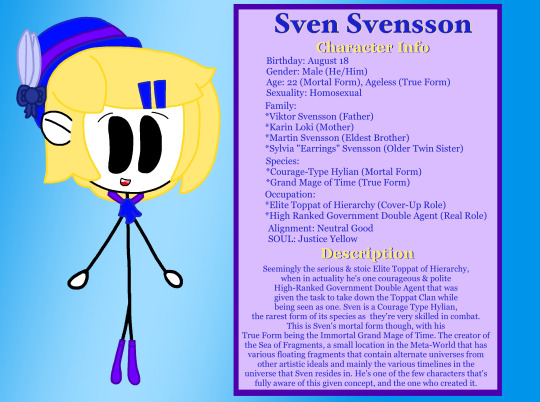
🕰️ The Henry Stickmin Collection Lamentations AU 🕰️ ⏳ Sven Svensson the Timeless Hylian ⏳
So yeah! I decided to make a brand new Henry Stickmin AU that I simply call as the THSC Lamentations AU! 🕰️
It's made with some concepts of the THSC Facade Collab AU in mind, mainly in terms of everyone having fantasy attributes. Hashtag: #/THSC Lamentations AU
Taking place in a THSC AU that focuses on a more accurate approach in terms of the official game. 🌹
Concepts such as Sven being the Government's Double Agent will be one of the main things for my THSC Lamentations AU. A few ideas will be changed for other characters, and both overall brand new ideas will be added as well. 💙
Speaking of which, Sven's design in this AU is pretty much the same in all my artworks prior to this new story being created. Personality-Wise though I chose to make him a bit more courageous and physically capable in combat, but still kept his polite and sweet personality intact. ⏳
Main Ideas Planned: 🎀 *Made as a sort of alternate version for the official version of The Henry Stickmin Collection. *Got inspiration mainly from the Persona Franchise, Cookie Run Kingdom, and Higurashi/Umineko Visual Novels. *Starts from Breaking the Bank up until Completing the Mission, certain endings will be mixed but will mainly be the Triple Threat Ending with added bonuses. *Every character will have fantasy-based attributes (Ex; Sven as a Hylian, Dave as a Vampire, etc) *At least 12 Chapters are planned, and certain characters that were support/minor in the original game will become a major character instead.
I also wanted to go back to drawing and writing more Henry Stickmin content! Just need to find the time to make the other characters and more ideals too. 🎀

#facade¡sven#sven svensson#thsc lamentations au#thsc#thsc sven svensson#thsc sven#thsc fanart#thsc au#henry stickmin#henry stickmin collection#henry stickmin au#henry stickmin fanart#henry stickmin sven#henry stickmin sven svensson#the henry stickmin collection
5 notes
·
View notes
Text
Wolfsong by TJ Klune: the things I liked and didn't
This was a good read, completed it in a day.
SPOILERS ARE IN RED- They are not major
THE THINGS I LIKED A LOT
The characters having 'bonds' in every sense, such as the parallels between Ox's relationship with his mother and Elizabeth, Thomas and Joe, my personal favourite being his brother/fatherly bond with Gordo.
The way the characters at Gordo's (the car mechanics') interacted with each other- the playful teasing between these characters was definitely a highlight and made for the funniest scenes.
The twists and turns of the story both managed to make sense and be decently unexpected. Of course, some of them are predictable, but I'd argue predictable isn't bad as long as it really makes sense.
Ox's character development was great. Seeing him develop and grow into that of a leader, seeing him gain both confidence and a family.
The Bennetts as a family was well set up, even when we see them take to Ox very hastily, it doesn't seem rushed. It feels very natural and their family dynamic never failed to make me smile.
How grief and trauma was handled. How Ox becomes much stronger from it, grasping to keep everyone together despite his own grieving. How Elizabeth completely blocked out her pain, reverting to a simpler form, in order to process her emotions. How Joe becomes impulsive and fleety...etc...etc...
The fact that many minor characters in the first half of the story come back. Like with his ex Jessie and the boys from Gordo's.
The reunion was handled well I believe, it always annoys me when a character either spends too long forgiving a character when in a dire situation. Or when they do a 180 as soon as they reunite. It took a week, which, considering they didn't know when they'd be in danger again, makes a lot of sense.
The repetition of certain phrases. Such as what Ox's father said to him as a child, or 'not yet'. The best of these is the 'oh' moments when a character bonds with another in a very deep way. Without any spoilers, they form a deeper understanding of what the Bennett family or their love truly is.
The writing style fits the main character a lot. He's straight to the point and doesn't use embellishments in his words. Though, sometimes I would've liked some pretty descriptive words- like say- what we would get in Song of Achilles. Yet, it fits the book well and was a good narrative device.
I'd say the best aspect of this book is the relationships between the characters. The family bonds, friendships and love shared between our two main characters.
My favourite characters would have to be Gordo and Elizabeth.
NOW FOR WHAT I DIDN'T LIKE
The age gap: 6 years is not always a bad age gap, but I'm a bit iffy at this one.
Their relationship doesn't begin until both characters are 17 and 22/23, and their sexual relationship doesn't begin until they're 20/21 and 26. However, they meet when Joe is 10/11 and Ox is 16. Which, yeah a bit weird. It's obvious that Joe has a little crush on Ox, and it can be uncomfortable at times.
Only 2 main characters in the first novel are women, one is a mother, and the other is an ex-girlfriend who at some point becomes a more prevalent character in the book. Sorry if that's nitpicky, but I did wish there were more female characters. Since many of the men in this book are queer, it would be nice to see a few queer women as well.
Some of the 'wolf talk' can be very confusing to read. I'm not sure if that's the point, but it can get a bit tedious to try to decode all of the dialogue.
The highschool. We didn't see much of highschool at all. I mean Ox spent most of his time there in the first quarter, and we only see a handful of random scenes. It's also stated that the Bennetts are revered and respected, But I don't really see any of this in practice. It's just stated a few times.
It's hard to place who Joe is as a character. He changes a lot in the book, but I don't find it gradual due to the fast time skips. This is likely to represent and allow us to also feel the 'boy became a man' scene. Ox one day is stunned by the realisation that Joe is now a man, and he hadn't even noticed. But I'm talking about his personality, we don't see how he goes from clingy and sweet to flirtatious and teasing. Then to what he becomes at the end of the book- kind of patient and possessive, his personality kind of hinging on 'I love you' and 'I'll tear the world down for you', which is very romantic and all...but, what else?
End notes:
There are two sex scenes in this book, one in the last quarter and one in the epilogue. They're okay, didn't make me cringe, that's all I can say about that.
Give this book a 8.5/10 maybe a 9/10 if you like angst, werewolves, queer romance and found family.
4 notes
·
View notes
Text
entertainment industry melodrama, x2
Since I'm not an entertainment/culture news reporter, I do get a bit embarrassed at times when I somehow end up too knowledgeable about celebrity gossip. And it's an entirely different level of awkward when that becomes true for a fictional universe.
But in my defense, I saw a lot of it twice, since 冰块儿/Bing Kuai'er has two stories in the celebrities/entertainment industry genre with overlapping timeline, cast, and plot events:
专属深爱/Exclusive Love
黎明之后/After Dawn
The main love interest in Exclusive Love and the protagonist of After Dawn are best friends dating back to childhood and make cameos in the other CP's story.
Even though these two stories are closely related, they are in very different genres. Exclusive Love is a mostly "sweet" entertainment industry story, and the major plot elements are centered around the main characters' artistic careers. After Dawn is a bittersweet (dog blood) reconciliation story, and is really centered around the family/business rivalry that caused the initial break up; the main characters just happen to work in the industry.

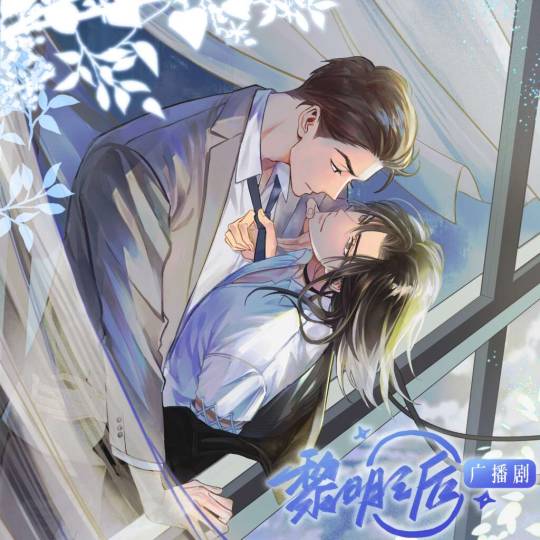
(Audiodrama cover art for Exclusive Love, After Dawn. They even made audiodramas with the same cast for the main characters! Unfortunately it is not on Mao'er and the reception, especially for Season 2, hasn't been great.)
Synopsis [Spoiler-free]:
专属深爱/Exclusive Love -- Idol singer Xia Xi'ai is an orphan from a humble background, and despite having accumulated a massive fanbase within a year of his debut, is still a relatively powerless newcomer in the entertainment industry. He meets award-winning actor Jiang Liushen, who comes from an elite family in the industry and has been famous since childhood. Xia Xi'ai wins over Jiang Liushen with his talent, kindness, and tenacity, and Jiang Liushen helps free Xi'ai from his exploitive management agency and realize his full potential as a musician.
黎明之后/After Dawn -- Star actor Li Luo's management agency is acquired by his ex Duan Mingyang, with whom he parted on very unpleasant terms. However, now they agree to work together to take on a common enemy in Duan Mingyang's half-brother, who is both Mingyang's competitor in the family business and the business rival who framed Li Luo's father for serious crimes. During their collaboration, new information forces them to re-evaluate their perception of each other and their understanding of what happened during their relationship five years ago.
[Minor Spoilers]
专属深爱/Exclusive Love is really a "sugar pie", fairly straightforward story in which unlucky but resilient idol find his true love in the confident and powerful star actor. Xia Xi'ai has endured some of the harshest hands dealt by fate, but remains determined, optimistic, and grateful. However, losing all the important people in his life at a young age has left him with deep insecurities about attachment and abandonment. Jiang Liushen comes into his life with the kind of confidence and kindness that can only come from someone who grew up extremely talented, loved, and supported. With Jiang Liushen's help, Xi'ai works through several major setbacks in his musical career, and stops needing to brave every storm all by himself. Meanwhile, Xi'ai's experiences and resilience inspire Jiang Liushen to work through some recent personal and professional struggles.
In contrast, 黎明之后/After Dawn is just a waterfall of "dog blood". These two people nearly destroyed each other with heartbreak and betrayal, but they refuse to move on even after five years of having no contact, to the point where it's irrational and unhealthy how attached both of them still are. They talk about their bitter separation multiple times because they are not over it, but their choice of a few crucial words always make the misunderstanding worse. This novel is one of my favorite guilty pleasures: all the evidence points to them making bad decisions out of stubbornness and desperate hopes to rekindle a dead romance, but eventually the plot vindicates their choices and gives them a happy ending. [Warning: This story has made some people very mad. It's the kind of story for wanting to be taken on an emotional roller coaster on "head empty, just and love and feels" kind of mode, not for when you want to think critically about relationships and personal growth whatnot.]
In the end, I just want to laugh a bit at Jiang Liushen. Since Exclusive Love is written first, Jiang Liushen plays a more extensive role in After Dawn than the other other way around. He is a movie star and romantic hero is his own sweet romance novel, but in his BFF's story, he is providing Li Luo with friendly brotherly support, drawing Duan Mingyang's ire as an imaginary romantic rival, and also very active in foiling financial crimes -- who would have thought being s a supporting character would take more work?
#黎明之后#专属深爱#After Dawn#Exclusive Love#danmei novels#book review#my reading#danmei faves#modern danmei#celebrities danmei#dawning
3 notes
·
View notes
Text
How To Date A Magical Girl! review

been a while since i've done one of these, hasn't it?
MAJOR SPOILERS BELOW THE CUT
As much as I want to recommend this; I don't think I can. Don't get me wrong, I had fun! It's pretty solid throughout the whole game!
…Until you get to the last part. ----- MY MAIN PROBLEM:
You see, suddenly one of your friends starts sending you very weird and nonsensical texts. Over 600 of them, in fact. Your character, concerned, runs over to her dorm. They then find her dead. I myself chose Yui, so Rei was the first one I found. I was shocked that one of the main girls would actually die! I was very interested in where this was going, even if I felt that the deaths were getting much too close to each other (like there was a 10 minute break in between Shin dying and Ami/Ame dying).
After this, the game starts glitching extremely consistently. The rest of the girls follow the same pattern--nonsensical text, MC runs over, they find an increasingly gruesome crime scene. I felt like I was watching Felidae, in a way. I kept on playing, assuming this was an odd dream sequence or that the MC was going into some form of psychosis. It was not.
It is then revealed that the main character is in a coma, Ash Ketchum style. You had gotten hit by a truck and somehow survived. You were then put into a world with an AI assistant, that being Satomi/54T0M1. I absolutely despise this trope. I have never seen it done well, and at this point I doubt it can be. You then get to go into one of three endings: one where you wake up from the coma (bad ending), one where you kill/seal away Satomi and stay with your anime waifu forever (happy ending), and one where you confess your love to Satomi and then wake up anyway (mystery ending).
The only one I felt satisfied at all with was the third one. With the whole coma thing being revealed, the bad end felt like waking up in the middle of the night and not being able to get back to sleep, and the happy ending just felt.. wrong. Like, how is this supposed to be happy, or even satisfying, when there's a huge problem just being ignored? By the third one I just wanted to get it all over with.
The endings in general are a bit of a problem. They all feel way too rushed, like the devs had everything planned but had no clue what to do for the ending and just wanted to get it over with. This VN is a perfect example of how a bad ending can ruin a whole game (or in this case, general story).
Though, I will give them credit on the foreshadowing! Even with how much I hated the ending, it made a lot of stuff (ex. Ami/Ame glitching out, dead bodies having visual glitches, the final exam, the random beeping, etc.) make sense. ----- MINOR PROBLEMS:
There was a ton of tonal whiplash throughout most of the story. A great example being with the MC just getting over seeing a dead body within 2 days, going back to their normal romcom school life and then suddenly finding another dead body. The MC's word salad reactions to trauma also got comical rather quickly.
The day-to-day grind gets boring very quickly if you've already done everything. Albeit, this is mostly a late-story problem, but it makes the final month or two boring regardless. ----- IN CONCLUSION:
This was a very fun read, but only left me with disappointment at the end. I am aware this was released in early 2019; so I really hope that any of Cafe Shiba's later/future works are improvements on this one.
If you like gory bait-and-switch romcoms and don't mind the ending, I do think this would be a good visual novel for you. Not as much for newcomers to the medium, though (as it IS ~14 hours long).
I think the highest rating I can bring myself to give this is a 6.5/10. Thank you for reading.
1 note
·
View note
Text
How to get UNSTUCK when Writing 🧾
Whether you’re mentally or physically in the dumps or your story itself is just in an unmovable place— here are some tips on how to get unstuck and progress your story!
1) Add more obstacles for your protagonist or intensify their problems.
If your story is feeling slow or stuck, it might be because there’s not enough happening. Experiment with this. Do you have enough conflict? A really solid, well-thought-of character goal? Can you worsen your character's problems or make their path to the end much more difficult?
You don’t have to use any of these ideas you end up brainstorming— but rather just explore different pathways of doubling down on the drama. You might just find a path that really resonates with your theme and story.
So, here’s a conflict. Let’s intensify it and make it worse:
Jake’s crazy ex comes to town.
She just got out of prison for trying to kill him.
Actually, escaped prison.
… And brought four of the town's more notorious inmates with her.
When she tries to sabotage Jake’s life, the inmates protect Jake.
Because unbeknownst to him, his father was a huge crime lord.
The inmates now expect him to take over as a crime lord.
Depending on how slowly and naturally you unravel these problems, it can become a super intriguing, suspenseful story with one mystery after another revealing itself!
2) Explore deeper into other characters.
Think about what it would be like to give a side character more screen time. Consider what the story would be like if they were the main character, or if they were the main character's best friend, the villain, etc. You might find out that one character might fit better a different role.
Can the actions and reactions of a side character affect the story or your protagonist more intensely? Do you have too many characters? Can you merge any of them together? Debatably, two really interesting side characters are better than five basic ones.
3) Don’t stop writing because your novel is straying from your initial idea/outline.
If your story feels like it’s taking control of itself and ending up down pathways you weren’t intending... keep writing. Freely, recklessly, sporadically. It’s better than writing nothing at all, isn’t it? Stick to your outline and plans as much as you can, but don’t let it stop you from writing because you’re not following it enough. You won’t know for sure if you dislike a pathway until you explore down it. You could write a dozen chapters that you don’t like... but out of all those scenes, you might have written your favorite one that you can keep!
4) Begin writing your most anticipated scenes!
If you’re a linear writer like me... this can be hard. I like to write in order, and in a way, it feels exciting to “finally get to write that one scene I’ve been dying to explore!” But on the other hand... it can be dreadful and boring to slosh through smaller scenes before getting to the real heart of the story.
So, treat yourself every now and then. Don’t wait to write those smutty scenes, those action-packed scenes, those juicy secrets reveals. Write them and enjoy it! Let the passion back into writing.
5) Count your subplots.
Do you have too many? Or maybe not enough? Are you getting as much as you can out of them? Do they add to your theme(s)? Are your side character interweaved throughout these subplots? Here are some ways that subplots can help your story:
• Subplots can balance the pacing of your story by slowing it down or speeding it up (a slow-burn romance might slow things down, while a thrilling mystery might speed it up).
• Provide twists and turns, create suspense and mystery.
• Can solve plot holes or problems in your main plot.
• Intensify or mirror your theme. If the theme of your story is betrayal, you could have minor or major lessons of betrayal laced into your subplots.
• Balance and add different moods to your story. If your story is really dark and eerie, some comedic relief, romance, hope, etc. could be added through subplots.
6) Go back to the source.
Why did you begin this story in the first place? Was it a dream you had? Did you see something out in nature that sparked a huge idea? Does it come from a personal experience? Think about how your story has evolved since then. Do you like the direction it’s going in now? Is the primary theme you wanted to tell still intact?
Going back to the seed that started it all can be a great way to figure out where the problem came from. Has your story strayed too much from your idea? Maybe your character has naturally developed in ways that contradict how you wanted them to be. Either way, once you figure out where it went wrong, you can begin to backtrack and fix things!
7) Create a Deadline.
Start with small goals: one paragraph a day, for example.
A deadline will force you to write— no matter how little. One sentence could lead to a paragraph, which might turn into a page. Starting is always the hardest part, but you have to start somewhere in order to enter the “flow” of things.
Instagram: coffeebeanwriting

📖 ☕ Official Blog: www.byzoemay.com
#writing tips and tricks#writing tips#writing advice#creative writing#writeblr#writing blog#how to write#writing help#writing fiction#writing prompts#fantasy writing#authortips#authoradvice#writingtips#writingmemes#writers blog#writingblog#authorsblog#howtowrite#writingtipsandtricks#writerscommunity#writers community#writinghelp#writingprompts#writertips#howtowriteascene#writingfiction#fictionwriting#fantasywriting#writing memes
554 notes
·
View notes
Text
Title: The Invisible Committee
Author: Clara Fiddis
Rating: 5/5 stars
An excellent account of a bizarre social movement, written by one of the people actually involved with it.
I don't know anything about the movement, but I do know that, when it comes to politics, what seems true to me tends to be a minority opinion. As a result, the standard narrative about politics consists of the main players being the "good guys" fighting against "the other side", which is to say, the kind of narrative that makes you want to cheer for the underdog and is therefore emotionally satisfying.
This is a book that shows this narrative -- "there is something wrong with people like us, and if we could get them to see our vision, we could fix them" -- for what it is, and then takes the next step of making it so that you can't just ignore these people any more. Because the social forces behind the movement, whatever they are, are bigger than a handful of bad actors, or even a sizeable minority of bad actors, and that's what we're dealing with here.
The Invisible Committee is about a "commune" on the island of Châteauneuf-sur-le-Lac, one of the communes involved in the "movement of the unemployed". This movement was founded by a French philosopher named Guy Debord, and they are famous for having declared that all of society was "spectral," meaning that all things are mere images that are at war with each other. Spectralism means that any human activity or goal is just one more side in a gigantic war with all the other sides. Debord's goal was to give this war its own symbolic language, and he chose a flag: the "Invisibles of the Spectral War." He and his disciples wore this symbol as a way of displaying their shared principles: they wanted to make the "spectral war" real, to make it possible for everyone to participate in it, to be the kind of people who'd make it real.
Debord's followers are called "the Invisible Committee," and they call themselves "comrades," not because they're all brothers or something, but because there's no such thing as privacy in this world: to exist is to be seen.
The book is written by the person who got involved with the actual Invisible Commune, Clara Fiddis. Fiddis is a fairly obscure French writer; I'd never heard of her, but that's not because she's not a significant figure in French politics. In 2000, when she was 26, she published Guys, one of the best novels of the 21st century. A young French girl leaves her home to join her favorite band in its tour van, and then she loses that band when it breaks down. Afterward she wanders in search of a new, more perfect band. She finds it, but as it grows, it turns on her, first by killing off her character, and then by taking on its own form, growing so big and strong that it makes all other life forms in its path vanish.
After the story ends, she takes the place of the girl who disappeared, as one of the other band members. She begins a kind of slow, quiet, inward revolution, with the goal of achieving a kind of purity that will transcend the band and its drama. In the end, she achieves this "purity," but she has destroyed all that was valuable to her in the process; the "band" as she knew it was broken down, but she no longer knows who or what she was supposed to have been. She becomes a kind of "holy fool" in the band's van, as she travels from one gig to the next in what must now be the last chapter of her life.
One of the major themes of the novel is the distinction between truth and authenticity. When she starts out as a member of the band, she says that she is a girl who's "seen everything already": her name is Clara, and she's young, and she believes she knows everything about this life. As her involvement with the band grows, she comes to see how many of these things are myths, how few of them -- in fact -- are real, and how little of what she does as a band member is really "her." She thinks about her friend and ex-bandmate who died on tour, and whether that person "was really someone [she] was friends with," and she realizes that she really didn't know the person all that well, and she didn't know anything.
She comes to realize that the "band," for all its drama, was still a myth, a "spectral" life that she had imagined for herself. At the end of the book, when she's driving, she sees what she calls the "spectral city": in her mind, a place of light and shade. In reality, it's just her old town, but she's left it behind -- or, rather, it's left her.
Fiddis' narrator talks about this idea of truth and authenticity a lot, but she doesn't seem to know quite how to talk about it. She talks about a kind of "inwardness," a desire to make your existence "wholly [your] own," and she talks about how "to exist is to be seen, to be seen and to be touched is to be felt and to be felt is to live. The only freedom is to not be afraid and to live as if I already know who I am and what I must do." A world where everyone is "living as if [they] already know[ ] who [they] are" is very different from the world we live in.
Debord was an important political figure, famous among a particular sort of left-winger for his writings in support of the urban guerrilla street fighter and the militant anti-government activist -- the kinds of people we imagine when we picture our modern anarchists, or the more extreme sorts of Maoists. Debord's own politics were not very lefty, though, and to his credit he seemed to realize that his movement was not "radical," in the usual sense of the word. It wasn't a social movement, not really, just an idea that had to be spread by other people. "Revolution" means something different in French than it does in English; the word is closer to "change" than "revolution," and it connotes more the idea of a "project" than a "cause." In the end, the Invisible Committee wasn't the kind of thing that could be a cause, it was the kind of thing that could, perhaps, be
34 notes
·
View notes
Text
Good uses for Word of God/Supplementary Material (guidebooks, interviews, AMAs, bonus content, etc):
What-ifs and worldbuilding questions that the characters have no way of knowing the answers to, and that aren’t answered in the plot (What would it take to permanently kill Resurrection Girl? Can the Unbreakable Sword destroy the Amulet of Plot Progression? If Mr. Traitor hadn’t been killed, would his plan have worked?)
Minor details that aren’t directly relevant to anything (full names of side characters, lists of birthdays and blood types, favorite foods, etc)
Backstory and worldbuilding that informed certain writing decisions, but does not directly impact the plot. Pretty much just glorified headcanons (the guard is annoyed because his cat threw up on him and he got to work late only to find that the break room was out of coffee, but all that matters in the story is that he’s annoyed. That supporting character has a younger sister. Those two guys met in college and have been inseparable ever since)
Expounding on stuff that the source material conveys the gist of (if the fighter, on his introduction, says “Yeah, it was really hard to get the Legendary Sword of Legend. If I never have to see another frog it’ll be too soon” you could write an expanded universe novel or comic about his epic quest to the Frog Swamps to retrieve the Legendary Sword of Legend. If the story isn’t about politics but features various fantasy governments the author could clarify rules of succession/governmental structure in an AMA)
Bad uses for supplementary material:
Character learns a new skill or acquires some vital tool in bonus material, and that skill appears with no foreshadowing or explanation in the main text to solve a major problem. That’s just a deus ex machina.
“I said he was gay in an interview. That makes it canon and I’m a paragon of inclusion.” If it’s not visibly in the text, it’s not worth bragging about.
“Why did that character suddenly switch sides/betray the ideals he’s held for the entire story up to this point/break her own rules/decide to spare the guy they’ve spent half the story trying to kill?” “Well if you’ve read the limited edition tie in comics you’d know...”
“That thing was an insurmountable problem in part 1. Why is everyone just ignoring it in part 2?” [one sentence explanation on twitter or reddit]
Basically, I should be able to consume only the main content and get a full experience. My questions should be “I wonder...”, not “Why?” If my friend is confused about something, I should be able to answer it with only the information provided (”It’s implied he took advantage of the chaos to break out.” “She did a bunch of training during the time skip.”)
65 notes
·
View notes
Note
Dark Crystal Question: Rank the best ways to consume the lore of the world. I've seen the original movie and the Netflix adaptation and I love them both and I want to participate in more of the Fandom but it feels like I only have a third of the pie. Rank the best-to-worst canon materials and lore!
So here's the tricky thing about the Dark Crystal's lore: it's contradictory. Even in stories centered around AOR, because the Jim Henson company is pretty loose with how their work and characters are portrayed, things get muddied up.
The best way I believe to think of the inconsistencies is seeing it all as different timelines (which could be backed canonically if Aughra's line of "I see many endings laid before us" has anything to go by). So what I am going to do is categorize lore-based materials into different groups, but still rank them from consistent to inconsistent.
Also, FYI, these are subjective so you can take it with a grain of salt if you don't agree.
Uncategorized:
Creation Myths: This is probably one of, if not the most, important lore-based material for this franchise. It dives into what happened during the very beginning of Thra's life, the arrival of the urSkeks, what led up to the Division, and what followed shortly after. There is some very minor contradictions between info told here and AOR, but it's not so distracting that it's noticeable. In my opinion, this should be the first thing to read as it sets groundwork for a lot of the other stories.
The Dark Crystal Bestiary: This is basically a compendium of all the creatures of Thra, including Gelfling, Skeksis, and Mystics. It doesn't include every animal within the franchise and it leaves some of the Urru and Skeksis out but overall pretty informative with nice illustrations to boot. There are some info mentioned in here that people didn't agree with but in my opinion it adds more to a lot of other characters.
Age of Resistance Focused Material:
Songs of the Seven Gelfling Clans: This is basically an in-depth look into all Seven Clans written by J.M. Lee who also was a creative consultant for AOR so because of this I think this should be ranked highest in this category. It's a nice info dump of the seven Gelfling clans so if you wanted to learn more about a specific clan this is your go-to book.
Heroes of the Resistance: It's a small book with a lot of the information taken from the Dark Crystal website word-for-word, but it also has nice additional information not seen anywhere else about some of the other characters.
The Ballad of Hup & Barfinnious: Of all three prequel comics, this one hardly, or doesn't even, contradict lore established by AOR. It's the story of how Hup got the idea of becoming a paladin being mentored by an ex-paladin named Barfinnious who get into sorts of trouble. We get little lore drops about paladins and the Spriton clan. While a fun read, it's the least memorable out of the three.
The Quest for the Dual Glaive: My personal favorite of the prequel comics. It's the story of how Ordon retrieved the dual glaive. It gives needed exploration of Ordon, as well as Fara's, characters with a look at how the First Battle of Stone-in-the-Wood went. There is some minor contradictions between how the story went and Maudra Argot's accounts of it in AOR but it's not enough to ruin the comic.
The Journey into the Mondo Leviadin: This one is a double-edged sword when it comes to consistency. The comic adds a lot of interesting things to the world including an in-depth look into the All-Maudra lineage, additional lore about the Sifan clan, and crustecean sub-species of Podlings and Arathim (called the Bobblings and Zoas in that order). However, it also makes some odd writing decisions, some of the major ones being the characterization of skekSa the Mariner and the ending which, to not give off too much spoilers, sort of flips the whole idea of the Vapra disapproving Gelfling of two different clans from getting together on its head. It also painfully contradicts some of the lore stated in Songs of the Seven Gelfling Clans that came out a month or so after this comic.
Quadrilogy Book Series:
Also known as the J.M. Lee book series. This should be seen as a self-contained story because while it eventually follows key plot points we see in AOR, it definitely takes place in a different timeline with a focus on Naia, Kylan, and co. I do recommend reading these books anyway as it gives focus to side characters who had little screen time or who haven't shown up at all (including villains such as skekLi the Satirist and skekSa). Also some other characters (like skekLach and skekMal) are different from their on screen counterparts.
Movie Focused Material:
Dark Crystal Novelization: Jim Henson said this book was like the child to the movie, as it was written along with it under his supervision. I feel like this is an important piece to read as it adds context to the film that was sorely needed. The biggest of these was giving Jen more depth as a character which honestly should have been in the film. Aside from that, the book contains ideas that are outdated, both within the franchise and surrounding certain subject matter (as this was written in the late 70s/early 80s).
The World of the Dark Crystal: This is another companion book written for the film. It's written from Aughra's point of view and does contain lore specified within the movie. Much like the novelization, it also contains outdated information.
Legend of the Dark Crystal (Vols. 1 & 2): This is the only story within the franchise so far that focuses on the Garthim Wars. I remember reading these books followed more closely with the original notes from the movie and it's one of the first lore-based material released for the Dark Crystal. Of course, this takes place in a different timeline for various reasons. The most entertaining of which is skekLach, completely different from his on-screen counterpart, being a main villain for both volumes.
Power of the Dark Crystal: This is a sequel comic to the film and was based on the script for the sequel movie that was canceled after a decade of development hell. And boy does it show. While it does introduce cool ideas, mainly the introduction to Firelings, the plot is a poorly rehashed version of the film's with many plot holes and lore contradictories. Some people might enjoy this, but if you're lore focused it's okay to skip this unless you're really curious.
Beneath the Dark Crystal: The least interesting material, not just for this category but out of all the reading material in the franchise. It doesn't do anything to clear up the plot holes and follows the inconsistencies from the previous prequel comic while being a boring read. It does add more lore about the Firelings, but a lot of ideas introduced around that is uninteresting or missed potential. I don't recommend reading this unless you really enjoyed Power but don't expect the same writing quality.
29 notes
·
View notes
Text
It’s Arrested Development: How ‘High Fidelity’ Has Endured Beyond Its Cultural Sell-By Date by Vikram Murthi
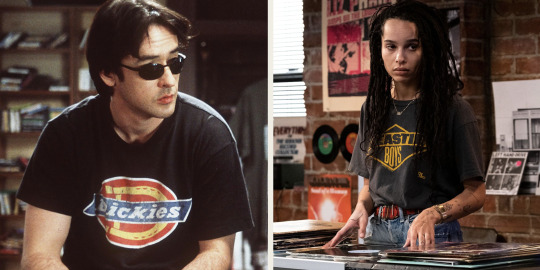
It’s easy to forget now that at the beginning of 2020, before the pandemic had taken hold of our consciousness, for a brief moment, High Fidelity was back. Not only did Nick Hornby’s debut novel and Stephen Frears’ film adaptation celebrate major milestones this year — 25th and 20th anniversaries, respectively — but a TV adaptation premiered on Hulu in February. In light of all of these arbitrary signposts, multiple thinkpieces and remembrances litigated Hornby’s original text on familiar, predictable grounds. Is the novel/film’s protagonist Rob actually an asshole? (Sure.) Does Hornby uphold his character’s callous attitudes towards women? (Not really.) Hasn’t the story’s gatekeeping, anti-poptimist approach to artistic taste culturally run its course? (Probably.) Why do we need to revisit this story about this person right now? (Fair question!)
Despite reasonable objections on grounds of relevancy, enough good will for the core narrative—record store owner seeks out a series of exes to determine a pattern of behavior following a devastating breakup—apparently exists to help produce a gender-flipped streaming show featuring updated musical references and starring a decidedly not-middle-aged Zoë Kravitz. I only made it through six of ten episodes in its first (and only) season, but I was surprised by how closely the show hewed to High Fidelity’s film adaptation, to the point of re-staging numerous scenes down to character blocking and swiping large swaths of dialogue wholesale. (Similarly, the film adaptation hewed quite close to the novel, with most of the dialogue ripped straight from Hornby.) Admittedly, the series features a more diverse cast than the film, centering different experiences and broadly acknowledging some criticisms of the source material regarding its ostensibly exclusionary worldview. Nevertheless, it seemed like a self-defeating move for the show to line itself so definitively with a text that many consider hopelessly problematic, especially considering the potential to repurpose its premise as a springboard for more contemporary ideas.
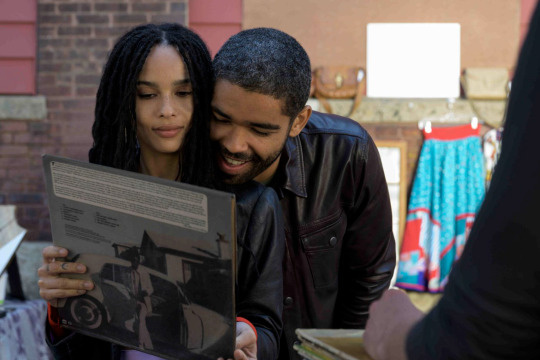
High Fidelity’s endurance as both a piece of IP and a flashpoint for media discourse is mildly baffling for obvious reasons. For one thing, its cultural milieu is actually dated. Even correcting for vinyl’s recent financial resurgence, the idea of snooty record store clerks passing judgment on customer preferences has more or less gone the way of the dodo. With the Internet came the democratization of access, ensuring that the cultivation of personal taste is no longer laborious or expensive, or could even be considered particularly impressive (if it ever could have been). Secondly, as one might imagine, some of Hornby’s insights into heterosexual relationships and the differences between men and women, even presented through the flawed, self-deprecating interiority of High Fidelity’s main character, are indeed reductive. Frears’ film actually strips away the vast majority of Hornby’s weaker commentary, but the novel does include such cringeworthy bits like, “What’s the deal with foreplay?” that are best left alone.
Accounting for all of that, though, it’s remarkable how many misreadings of Hornby’s text have been accepted as conventional wisdom. It’s taken as a given by many that the novel and film earnestly preach the notion that what you like is more important than what you are like when, in fact, the narrative arc is constructed around reaching the opposite conclusion. (The last lines of the novel and film are, literally, “…I start to compile in my head a compilation tape for her, something that's full of stuff she's heard of, and full of stuff she'd play. Tonight, for the first time ever, I can sort of see how it's done.”) That’s relatively minor compared to the constant refrain that Rob’s narcissism goes uncriticized, even though the story’s thematic and emotional potency derives from what the audience perceives that Rob cannot. To put it bluntly, High Fidelity’s central irony revolves around a man who listens to music for a living being unable to hear the women in his life.
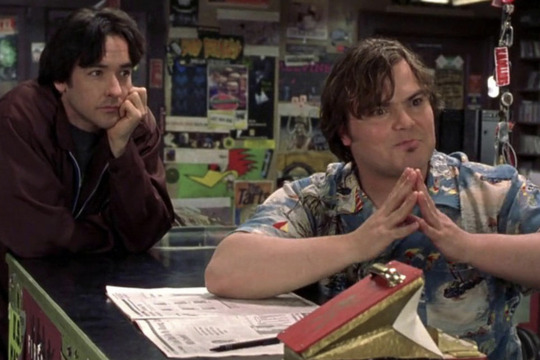
While Hornby’s prose immerses the reader in Rob’s interior monologue, providing ample room for the character to spout internal justifications of his behavior, the novel hardly obscures or conceals this conclusion. Moreover, the film makes it unavoidably explicit in numerous scenes. Rob (John Cusack) triumphantly pantomimes Rocky Balboa’s boxing routine soundtracked to Queen’s “We Are The Champions” after his ex-girlfriend Laura (Iben Hjejle) confirms she hasn’t yet slept with her new boyfriend Ray (Tim Robbins), but doesn’t hear the part where she says she prefers to sleep next to him. When Laura informs Rob that she did eventually sleep with Ray, Rob completely falls apart. In an earlier, more pointed scene, Rob goes out with his ex-girlfriend from high school (Joelle Carter) to ask why she chose to have sex with an obnoxious classmate instead of him. She venomously informs him that he actually broke up with her because she was too prudish, an abrupt, cruel bit of business we actually witness at the film’s beginning. It was in her moment of heartbroken vulnerability that she agreed to quickly sleep with someone else (“It wasn’t rape because I technically said, ‘Okay,’ but it wasn’t far off,” she sneers), which ultimately put her off sex until after college. Rob doesn’t hear this explanation or the damning portrait of his teenaged self. Instead, he’s delighted to learn that he wasn’t actually dumped.
These are evidently low character moments, one’s that are comedic in their depiction of blinkeredness but whose emotional takeaways are crystal clear, and one’s that have been written about before. My personal pick from the film, though, comes late when Rob attends Laura’s father’s funeral. He sits in the back and, in typical fashion, turns to the camera to deliver a list of songs to play at his funeral, concluding with his professed wish that “some beautiful, tearful woman would insist on ‘You’re The Best Thing That Ever Happened to Me’ by Gladys Knight.” It’s a really galling, egotistical moment that still makes me wince despite having seen the movie umpteen times. Yet, it’s immediately followed by the casket being lowered to the ground as Laura’s sobs ring out in the church. In a movie defined by John Cusack’s vocal timbre, it’s one of the few times when he completely shuts up. From two-thirds down the center aisle, Frears’ camera pushes into Cusack’s face until tears in his eyes are visible, but what you really see is an appropriately guilt-ridden, ashamed expression.
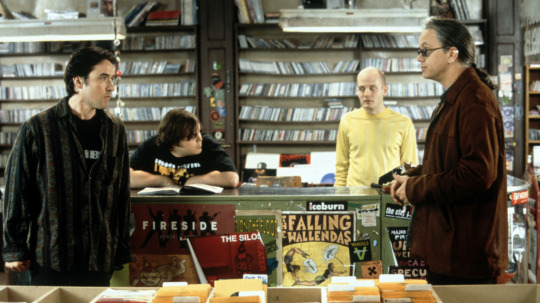
However, none of this evidence carries any weight if your objection to High Fidelity is that Rob suffers no material consequences for his behavior. While Rob is frequently called out for his actions, he is never actively punished. He doesn’t, say, receive a restraining order for continually calling Laura after they’ve broken up or end up alone mending a permanent broken heart because of his past relationships. By the end, Rob and Laura get back together and Rob even starts an independent record label on the side. It’s a stretch to characterize Hornby’s High Fidelity as a redemption tale, but it is a sideways rehabilitation narrative with a happy ending that arises at least partly out of mutual exhaustion.
Those two elements—Rob’s asshole recovery and the exhausted happy ending—rarely seem to factor into High Fidelity discourse. Granted, there’s credence to the idea that, socially and culturally, people have less patience for the personality types depicted in High Fidelity, and thus are less inclined to extend them forgiveness, let alone anything resembling retribution. I suppose that’s a valid reaction, one against which I have no interest in arguing, but it’s somewhat ironic that High Fidelity has endured for reasons that have nothing to do with its conclusions regarding inflexible personal principles and the folly of escapism. Both the book and film are specifically about someone who slowly comes to terms with accepting reality rather than live in a world mediated by pop cultural fantasies whose unrealistic expectations have only caused personal suffering. It’s not unfair to characterize this as a fairly obvious epiphany, but considering we currently live in a world dominated by virtual echo chambers with an entertainment culture committed to validating arrested adolescence, it retroactively counts as “mature” and holds more weight than it otherwise should.
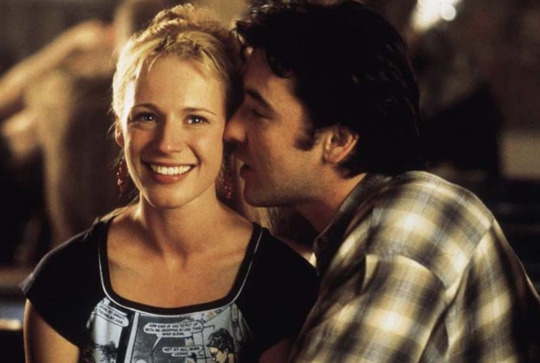
Near the end of High Fidelity, the book, after Rob and Laura have gotten back together in the aftermath of Laura’s father’s death, Hornby includes a chapter featuring five conversations between the couple unpacking the state of their relationship. During the third conversation, Rob and Laura fight about how she doesn’t care about music as strongly as he does, catalyzed by Rob’s objection to Laura liking both Solomon Burke and Art Garfunkel, which, in his mind, is a contradiction in terms. Laura finally admits that not only does she not really care about the difference between them, but that most people outside of his immediate circle of two don’t care about the difference, and that this mentality is indicative of a larger problem. It’s part of what keeps him stuck in his head and reluctant to commit to anything. “I’m just trying to wake you up,” she says. “I'm just trying to show you that you've lived half your life, but for all you've got to show for it you might as well be nineteen, and I'm not talking about money or property or furniture.”
I fell for High Fidelity (first the movie, then the book) as a younger man for the reasons I assume most sensitive-cum-oblivious, culturally preoccupied straight guys do: it accurately pinpoints a pattern of music consumption and organizationally anal-retentive behavior with which I’m intimately familiar. I spent the vast majority of my early years listening to and cataloguing albums, and when I arrived at college, I quickly fell in with a small group of like-minded music obsessives. We had very serious, very prolonged discussions filled with impossibly strong opinions about our favorite artists and records. Few new releases came and went without them being scrutinized by us, the unappreciated scholars of all that is righteous. List-making wasn’t in vogue, but there wasn’t a song that passed us by that we didn’t judge or size up. I was exposed to more music during this relatively short period of time than I likely will ever absorb again. Some of these times were the most engaging and fun of my life, and I still enjoy discussing and sharing music with close friends, but I’m not such a true believer to fully feel comfortable with this behavior. It’s not entirely healthy on its own and definitely alienating to others, and there comes a point when you hear yourself the way a stranger might, or maybe even catch a glimpse of someone’s eyes when you’re midst rant about some stupid album, and realize, “That’s all there is of me. There isn’t anything else.”
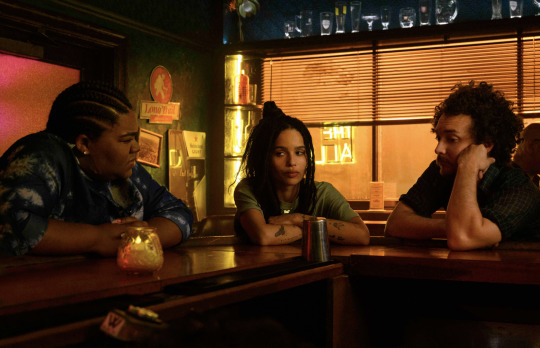
This is what Rob proclaims to Laura in the conversation when she tells him she was more interested in music during their courtship than she is now. It’s a patently self-pitying statement on his part that doesn’t go unchallenged by her in the moment or bear fruit in the rest of the novel. Yet, it’s this type of uncomfortably relatable sentiment that goes under-discussed. If High Fidelity will continue to have a life well after its cultural moment has passed, then it’s worth addressing what it offers on its own terms. Near the end of the book, Laura introduces Rob to another couple with whom he gets along quite well. When the evening comes to an end, she tells him to take a look at their record collection, and it’s predictably filled with artists he doesn’t care for, e.g. Billy Joel, Simply Red, Meat Loaf. “'Everybody's faith needs testing from time to time,” Laura tells him later when they’re alone. Amidst Rob’s self-loathing and sullen pettiness, Hornby argues that one should contribute in some way rather than only consume and that, at some point, it’s time to put away childish ideas in order to get the most out of life. It’s an entirely untrendy argument, one that goes against the nostalgic spirit of superhero films and reboot culture, but it doesn’t lack merit. Accepting that some values aren’t conducive to a full life, especially when it’s shared with someone else, doesn’t have to mean abandoning interests or becoming an entirely different person. It just means that letting go isn’t an admission of defeat.
It’s why I’ve always found the proposal scene in the film to be quite moving, albeit maybe not specifically romantic. It plays out similarly in both the book and the film, but the film has the added benefit of Cusack and Hjejle’s performances to amplify the vulnerability and shared understanding. Laura meets Rob for a drink in the afternoon where he sheepishly asks if she would like to get married. Laura bursts out laughing and says that he isn’t the safest bet considering he was making mixtapes for some reporter a few days prior. When asked what brought this on, Rob notes that he’s sick of thinking about love and settling down and marriage and wants to think about something else. (“I changed my mind. That’s the most romantic thing I’ve ever heard. I do. I will,” she sarcastically replies.) He goes on to say that he’s tired of fantasizing about other women because the fantasies have nothing to do with them and everything to do with himself and that it doesn’t exist never mind delivering on its promise. “I’m tired of it,” he says, “and I’m tired of everything else for that matter, but I don’t ever seem to get tired of you.”
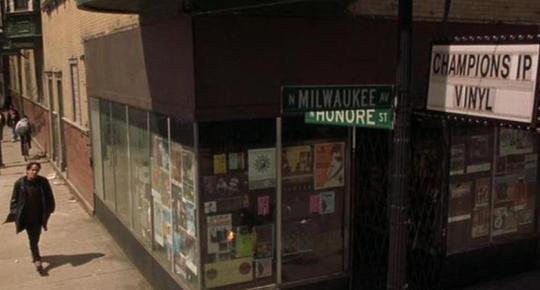
This sort of anti-Jerry Maguire line would be callous if Laura didn’t basically say the same thing to him when they got back together. (“I’m too tired not to be with you.”) It’s possible to read this as an act of mutual settling, but I always thought Hornby’s point was personal growth and accepting one’s situation were intertwined. The key moment in High Fidelity, the film, comes when Laura finds Rob’s list of top five dream jobs. (In the book, Laura makes Rob compile the list.) At the bottom of the list, after such standard choices like music journalist and record producer, lies architect, a job that Rob isn’t entirely sure about anyway. (“I did put it at number five!” he insists.) Laura asks Rob the obvious question: wouldn’t you rather own your own record store than hypothetically be an architect, a job you’re not particularly enthused with anyway?
It’s Laura who convinces Rob that living the fifth-best version of your life can actually be pretty satisfying and doesn’t have to be treated like a cruel fate worse than death. Similarly, Rob and Laura both make the active decision to try to work things out instead of starting over with someone else. Laura’s apathy may have reunited them, and Rob’s apathy might have kept him from running, but it’s their shared history that keeps them together. More than the music and the romance, High Fidelity follows the necessary decisions and compromises one has to maneuver in order to grow instead of regress. “I've been letting the weather and my stomach muscles and a great chord change in a Pretenders single make up my mind for me, and I want to do it for myself,” Rob says near the end of Hornby’s novel. High Fidelity’s emotional potency lies in taking that sentiment seriously.
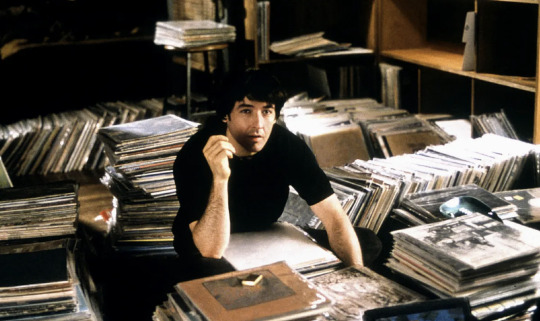
#high fidelity#nick hornby#stephen frears#john cusack#zoe kravitz#90s films#oscilloscope laboratories#musings#beastie boys#music#music movie#vinyl#vinyl film#jack black#tim robbins#adam yauch#vikram murthi#film writing#Film Criticism#hulu#reboot
39 notes
·
View notes
Text
TerraMythos 2021 Reading Challenge - Book 9 of 26
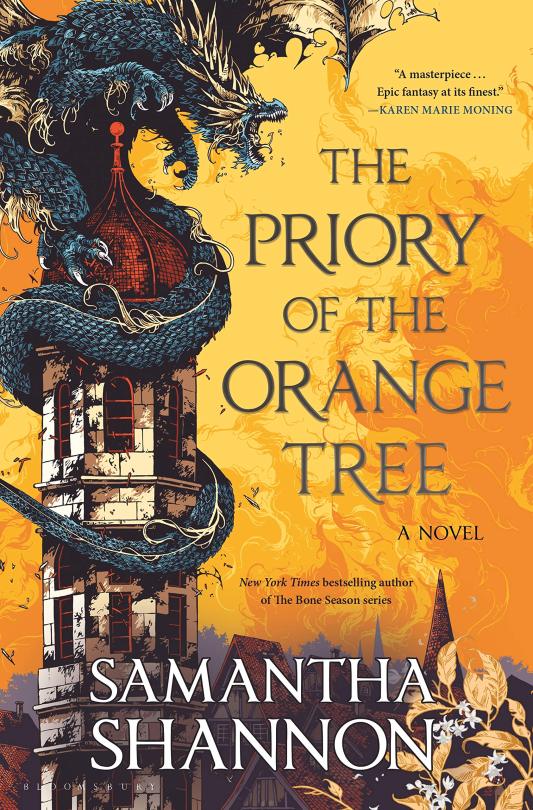
Title: The Priory of the Orange Tree (2019)
Author: Samantha Shannon
Genre/Tags: Fantasy, Epic Fantasy, Third-Person, Female Protagonists, LGBT Protagonists
Rating: 10/10
Date Began: 3/12/2021
Date Finished: 4/12/2021
1000 years ago, the world burned. Draconic creatures terrorized the land, led by a horrific evil known as the Nameless One. But then something happened that sent the monsters into a seemingly endless sleep, and the world has rebuilt in the centuries since.
But the Draconic evil begins to stir in its slumber, and the divided nations of the world have little chance to stop it. Eadaz is a mage from the Priory of the Orange Tree, sent to spy on the northern queendom of Inys. Legend has it that as long as the royal line continues, the world will be free from the Nameless One. While it's a long shot, Ead guards the young Queen Sabran closely to preserve the peace. However, as she and the queen grow closer to each other, Ead has to decide where her loyalties lie. Meanwhile, her close friend Loth is secretly sent into exile by the royal spymaster due to his controversial friendship with the queen. Supposedly sent as an ambassador to the newly Draconic kingdom of Yscalin, he soon finds himself out of his depth, entrusted with a deadly secret.
In the isolationist Eastern country of Seiiki, Tané wants nothing more than to become a dragon rider. The dragons of the East are old, wise, and revered as gods-- eternally opposed to the Draconic legions of the West. However, the night before the choosing ceremony that will decide her fate, she breaks isolation and discovers a young man from the West on the shore. Rather than report him to the authorities, she and her friend smuggle him to the island of Orisima, the only place Westerners are permitted. Niclays Roos, an old man exiled to Orisima by Queen Sabran, soon finds himself caught in the conflict. He believes if he finds an elixir for eternal life, he will finally be able to return home. When he's forced to shelter the forbidden Westerner, Niclays' entire way of life is upended-- but he is soon granted the opportunity to escape his exile.
'My grandmother once said that when a wolf comes to the village, a shepherd looks first to her own flock. The wolf bloods his teeth on other sheep, and the shepherd knows it will one day come for hers, but she clings to the hope that she might be able to keep him out. Until the wolf is at her door.’
Full review, minor spoilers, and content warnings under the cut.
Content warnings for the book: Some sexual content. Blood, gore, violence, traumatic injury, suicide, and death. Torture and execution. Miscarriage. Body horror (kinda). Drug use.
Clocking in at just over 800 pages, The Priory of the Orange Tree is a long, detailed story. I tend to label things Epic Fantasy when they have world-changing stakes. While Priory certainly fits that criteria, it's the first fantasy book I've read in a while that really does feel like an epic. It stars a huge cast of interesting characters from many walks of life, all of whom find themselves caught up in a world-spanning conflict. It captures the sense of a standalone, grand adventure that shorter fantasy novels of today don't typically reach.
With a book this long, it would be easy to ramble on forever about everything I liked. However, I'm going to try to keep it short and simple.
One of my favorite things about this story was the sheer depth of the world. Lots of people compare this to The Lord of the Rings not for its tropes, but the attention to detail regarding the countries, politics, history, religion, and so on. I'm inclined to agree with this assessment. The world felt alive and multi-dimensional. I could pinpoint many parallels to our own mythologies and histories-- particularly drawn from Europe, Asia, and the Middle East. There's also a clear love of language in the story via its beautiful prose. I like to think I know English pretty well, but this book taught me quite a few new words! Might fuck around and call sunsets "rutilant" from now on.
I thought all four leads were interesting. Ead is kinda the "main" lead of the novel, although Tané overtakes her in the latter half. Everyone had different personalities and backstories, and I genuinely enjoyed all of their arcs. Niclays in particular would be an easy character to hate; of the four, he's the most selfish and does some real questionable shit. At the same time, it's hard not to sympathize with him. He's a sad, unjustly exiled elder who's lost the one man he cared about, and finds himself in a desperate situation. These types of characters are interesting to me; a glimpse of what anyone can become given the wrong circumstances and cruel treatment.
With stories like this, one of the most satisfying payoffs is how the different characters and stories come together. It was interesting to see how their paths converged and diverged over time, and ultimately how everything tied together in the end. I also appreciated the character relationships. I liked that Loth's close friendships with both Sabran and Ead were intimate yet platonic without some awkward love triangle.
From some story specifics... I'm a sucker for the bodyguard romance trope, and seeing it done with women in a mainstream novel gave me life. I thought the romance between Ead and Sabran was really sweet; I didn't see how it would work early on since Sabran was a little insufferable, but she had hidden depths (oh god, another weakness of mine). I also really liked the idea of traditional European and Asian dragons being diametrically opposed, and that being a core theme of the story. Intelligent and/or talking animals are another thing I adore in spec fic, so I dug characters like Aralaq. Kalyba's ongoing relevance and gradual exposition was also neat; I love minor world details that turn out super relevant later.
Also, the entire final battle/ending sequence was SO good. Really creative and action packed. Action scenes often blend together for me (and can be logistical nightmares) but Priory's climactic ending was just awesome. I don't want to spoil specifics, but it reminded me of many beloved epic battles in modern fantasy. Avatar the Last Airbender, How To Train Your Dragon, and Pirates of the Caribbean all came to mind.
My main criticism with Priory is that often, the plot relied on convenient coincidence to get the characters out of a jam or otherwise advance the story. I can excuse a minor contrivance or two for the sake of a smooth story, and the scope of this book is big enough that it'd be hard to avoid. But some are nuts. For example, Loth gets rescued from certain death by a giant ichneumon while traveling through the mountains. We later learn the ichneumon is Aralaq, a friend of Ead's, and he just happened to be in the middle of nowhere, far from his home, and stumbled upon Loth. Loth, who ALSO happens to be Ead's best friend... which Aralaq presumably doesn't know?
Another is the MAJOR SPOILER regarding the rising jewel's location. I didn't hate the twist itself, but there was so little build up to it. I wish there were more early hints to justify it, because with setup it would be a pretty cool development. These things didn't ruin my enjoyment of the story, but the borderline deus ex machina (machinae? machinas?) did take me out of it a bit. It’s possible I missed stuff so I’ll give some benefit of the doubt.
Overall, though, The Priory of the Orange Tree is a fun, world-spanning adventure. Like any long book, it's an investment to get into. However, if you're looking for a standalone, feminist fantasy epic, this is certainly a good place to start.
#10/10#taylor reads#2021 reading challenge#bro this took exactly a month to read but in my defense it's long and i also powered through Pillars of Eternity lmfao
16 notes
·
View notes
Text
Scott Pilgrim’s Precious Little Life Review

Happy Birthday To Me, as I continue my birthday celebration by taking a look at comics that have a personal connection to me.. And for our main feature, i’m taking a look at the first volume of a series that was vitally important to a teenage me, Scott Pilgrim.
Scott Pilgrim is the brainchild of Brian Lee’O’Malley. O’Malley came up with the concept from a number of things. Being a fan of the band Plumtree, O’Malley was curious about the name of their song “Scott Pilgrim” and wondered who this Scott Pilgrim guy was. So over the years he slowly built the guy up in the back of his mind using bits of his life and what not. As for why he ends up fighting 7 evil exes, that came from a discussion with his then girlfriend, later wife and currently ex-wife Hope Larson, where he threw off the joke that her exes should form some kind of League. After finishing his first solo work Lost at Sea, O’Malley decided Scotty would be his next project and the rest is history. To date while O’Malley has written two works since, Seconds which is delightful and Snotgirl which didn’t grab me but I intend to try again, Scott remains his most popular work, in large part due to it’s SUBLIME video game and movie adaptations, the former of which is finally getting a rerelease next month.
The series charm is in it’s style: A manga styled comic that combines two desperate kinds of story: Shonen Fight Manga and Slice of Life Indie Comics. The story shifts from Scott going through normal life stuff while trying to make his new relationship work and get his shit together and Scott getting into big bombastic fights with his new sweetie’s exes for the right to keep dating her and to you know, stay alive. The series effortlesly blends a video game like world with real grounded characters and is wonderful for it. As for where I came in, one Free Comic Book day I found a little comic named Free Scott Pilgrim, which I genuinely loved and was instantly charmed by it’s humor and well done art. So I picked up the second and third volumes of the series proper and the first once I could find it and the rest ,as they say, is history. For my high school life, this was one of hte most important things in it and I wrote fanfiction, which I thankfully never put online and in general enjoyed the hell out of the series. Then I just kind of.. let it sit on my shelf for a while. It wasn’t BAD, I just never got back to it and as the franchise went dormant I just sorta slept on it and the movie and that part of me...
Cut to a few weeks ago, when Comixology did a massive sale for black friday that marked a ton of Graphic Novels down to just 1 buck each, and the color editions of Scott Pilgrim happened to be part of this, though only volume 1 was that cheap. But thanks to my best friend micheal and an early christmas/birthday present I got the rest and got to revisit the series as a whole, with me rethinking my previous thoughts of volume 1 and thus.. wanting to review it and share both why this series is so damn special and what’s good, and what’s not so good about it. I’ll also be covering the game, once i’ts re-released, and the movie once i’m finsihed with the comics so look out for that. And get ready to take a trip to the glorious land of canada...
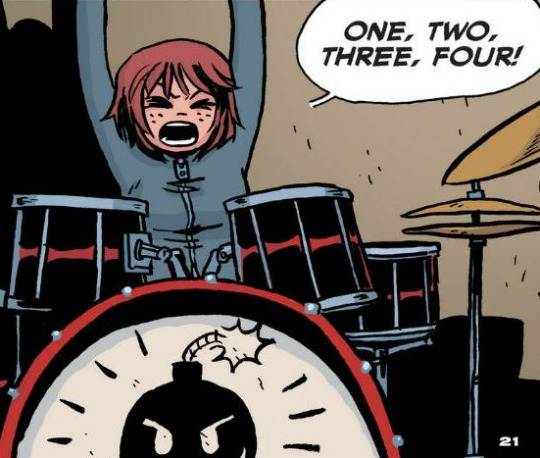
As a heads up and as you can tell i’ll be using the color version as while I could get scans of the black and white, I prefer the color version. While the black and white was fine and always will be, I think the impressive coloring job really adds to thing and makes the already great fight scenes pop more, as well as making certain background elements stand out a bit. While it does negate the black and white gags, the tradeoff is more than worth it. That being said either version is fine so if you can get the black and white cheaper that’s fine and i’ve kept my original copies, with volumes 4 -6 having been picked up as they came out.
So as our story starts we meet our hero: Scott Pilgrim Age 23, a charming but jobless and kind of sketchy possible college graduate whose really been adrift in his life since a breakup about a year ago. And when our story opens he’s taken a turn for a worse and decided to date sweet but naive and inexperinced Knives Chau, a 17 year old girl. And why yes the power dynamics there are messed up and why yes Scott is pretty damn sketchy in this moment in time, and while yes I am aware the age of consent in canada is 16, it dosen’t make this any less greasy and the story knows that. And how it knows that MOST of his friends aren’t on board. The only ones who seems to is Stephen Stiles, leader of Sex Bomb-Omb, the band scott’s in with one of the best names ever and even then it’s hard to tell if he’s being sarcastic or just a total douche. The other, Young Neil Nordgraf, Stephen’s roomate, is well 19 or 20 and kind of a dipshit so we just ignore him. I used to use him as kind of a projection, to put myself in the adventure when I was younger as Neil kind of lacks personality in the comics but in the comics.. he’s not hte best or most complex character. He is great in the movie though and Edgar Wright did an amazing job fleshing him out. The rest of his circle are .. not so permissive. His best friend, roomate and king of all gays for all time Wallace Wells very much does not want to come with Scott to school to pick her up because every part of that sentence after hurt to type. Granted Scott gets him to come with him with promises of boys, but frankly knowing wallace he was probably just playing along/wants to protect this poor child. His ex and fellow bandmate Kim is clearly bothered by it and is flat out worried Scott is taking advantage of her. Kim and Wallace are easily my faviorites both for personality and because I have a massive crush on both. With Wallace it just didn’t manifest till the reread. Finally Scott’s kid sister Stacey chews him out over it before genuinely wondering if he’s gone insane or he’s actually happy. For my two cents: he’s not. He WANTS to be, but he dosen’t know how. And as someone whose both neurotypical, which given Scott’s troubles with empathy and relating to people like yours truly I strongly suggest he is, and has struggled with depression I can relate to that. He wants to move on but he just.. can’t, he just wants to get past the haze he’s been in since Envy dumped him.. but he dosen’t know how. So instead of doing someting constructive or finding a job or anything .. he just took the first and easiest way out of his depression he could. I’ve done that with video games and stuff. Scott did that by entering a relationship that’s really easy, requires only so much effort, and is with someone who utterly adores, looks up to him and will never expect better. Being with Knives makes him feel better.. but it dosen’t MAKE him a better person. As i’ve made clear dating someone just for a boost makes him actively worse and had fate not intervened, I shudder to think what Scott might have become. That being said his actoins are still creepy and since Scott has a habit of landing ass backwards into being an asshole here’s a counter to track that. That’s 2 for doing this overall, one for tleling her to be good, and 1 for trying to ply wallace with underage boys.
Your the Scum of the Earth Scott Counter: 1
Thankfully fate does and Scott’s dreams, ones of him crawling through a desert alone, are interupted by a mysterious pink haired girl on skates. The next day he’s just sort of in a daze, kind of confused, and even more so when he sees her IN REAL LIFE, while at the library with Knives. He’s understandably frazzled but ends up finding out he’s not hallucinating when talking to MIcheal Cormeau. Micheal is a minor character and another artist and friend of o malley’s who represents that one guy in social circles who knows everybody. And indeed he knows the mystery girl, Ramona Flowers and that she’s there. Scott TRIES talking her up but just creeps her out, so Scott goes with plan b and decides to ask around about her. Enter Sandra and Monique, two college aquantinces of Scott, who just sorta show up at major events and aren’t that developed or intresting. They turn him to Julie who forbids him to date her. To which I say.
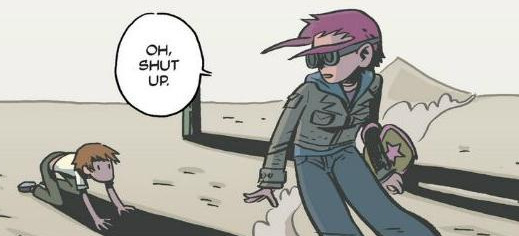
Naturually we’ll aslo be needing a counter for this.
Shut Up Julie Counter: 1
Scott however did find out she’s a delivery girl for Amazon Canada, and thus orders some CD’s on Wallace’s Credit card to hopefully see her. And while his behavior IS obessive.. it’s understandable. I’d be weirdly obessed with finding someone too if they showed up in my dreams every day and were apparently a real person. I’d probably play it cooler but still i’ts kind of understandable. So after a day with knives in which he’s clearly checked out she kisses him, he freaks out and it’s very clear that while Scott’s good at attracting women he’s just.. not good with his emotions and has finally woken up to how messed up this is, but has no idea how to get out now he’s intrested in someone he actually has a future with maybe. Speaking of Scott’s package and Ramona finally arrive. Scott’s move is to.. ask her out abrubtly but after he mentions her Dreams, Ramona finally puts two and two together and explains things: She’s been using Subspace, a seris of highways connected by the subconcious and apparently more common in america, though it’s later revealed she was taught this but being the first book with a lot of the lore and what not ironed out this is fine. Point is she was just using his dreams as transit and didn’t mean to get him obessed. Scott continues to try his schtick and eventually gets her to agree to hang out with him. Why she does I generally do not know, as SCott basically fell ass backwards over himself conversationally, but whatever. If he didn’t succeed we wouldn’t have a plot.
That being said things pick up a bit with the date though. The scene is really good and simply just the two.. talking. Having plesant conversations getting to know one another. That good stuff. it’s just really nice to read and it’s hard to explain why. Highlights include Scott’s x-men patch, Ramona not wanting to talk about her last job and Scott admitting he hasn’t been obessed in a long time.. and it comes off sweet rather htan creepy like that sounds. It just means he hasn’t fell this head over heels felt like this. As I said Knives was easy.. but this is hard.. and this.. feels right. So as things Snow Ramona yanks scott through subspace to escape the blizzard.
So we end up back at Ramona’s place and she offers some tea which leads to one of the best gags of the volume as she lists them off:
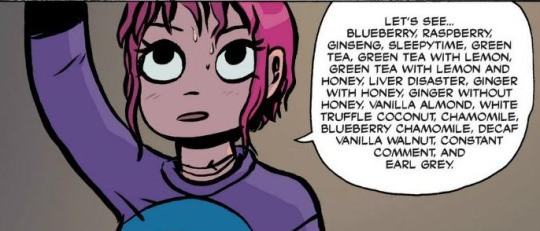
So Ramona goes to get Scott a blanket, Scott ends up following finds her changing, and she decides to warm him up another way.. by embracing him... cue.. the inevitible really.

It feels organic though: The two are clearly attracted to each other and while Scott came on as strong as freaking colossus, he still rebounded well once they hung out and he could relax a bit and show the scott underneath the lairs of dumbass. The two end up cuddling in bed and Scott seems..genuiley happy saying he needed this... awwwwwww. They part the next morning with him asking her to his band’s performance.
So Scott finds Wallace at home who says what Scott needs to hear “You need to break up with your fake highschool girlfriend scott’ Granted the entire first 40 pages could’ve been titled that but now he’s actively cheating. He’s also got a letter.
youtube
It’s a death threat Scott barely grazes through, just like an email earlier.
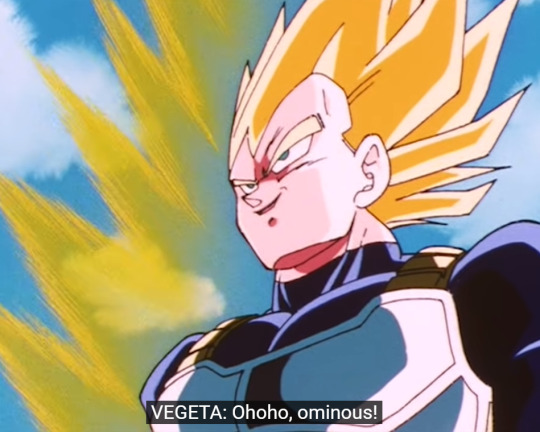
But scott’s more concerned with his emotional distress.. i.e. the consequences of his throughly shitty actions finally hitting him in the face.
Scott heads to practice for his gig and can’t bring himself to break up with knives, but does find out about the opposition: Crash and the Boys, based on an NES game title because of course it is. Crash, their leader, Joel their baseplayer who scott hates because he hates all other baseplayers (”I don’t hate myself kim) and Trasha, an 8 year old progedy they found playing Drum Mania. Don’t ask me what that is, i’m not going to get every refrence.
So at the show Scott runs into Stacey and her new boyfriend Jimmy with Stacey being supportive. And then Knives shows up and then RAMONA SHOWS UP. Oh no scott’s cheating might be discovered!

So Scott books it while we’re introduced to Crash and the Boys. Wallace heckles them, to the band’s annoyance, until they eventually get fed up and we easly get the best gag of the volume. I was wrong this clearly tops the tea thing.

So Crash and The Boys continue to play their set, including a song that supposdely kills the audience but really knocks them out.. which of course bothers kim because they play next. Meanwhile Ramona and Stacey meet and the two really get along.. and come back to find the audience ko’d and Wallace Making out with Stacey’s boyfriend. Oh no! Which is a dick move, no question. But Stacey’s next move is questionable even for a 19 year old: She says “You won’t steel another guy from me and tells wallace to sit over there”. Okay Stacey even if he is bi, and this series has trouble with the concept of bisexuals we’ll get into that later trust me, he made out with someone else entirely while on a date with you. Wallace is still an asshole, it’s part of his charm.. but it dosen’t change the fact your date kissed someone else seconds after you were gone and has been eyballing him all night, as seen even above. He’s not into you as you thought, just accept it, move on, and kick Jimmy in the balls and then wallace like a proper lady. So Scott prepares to play and this happens
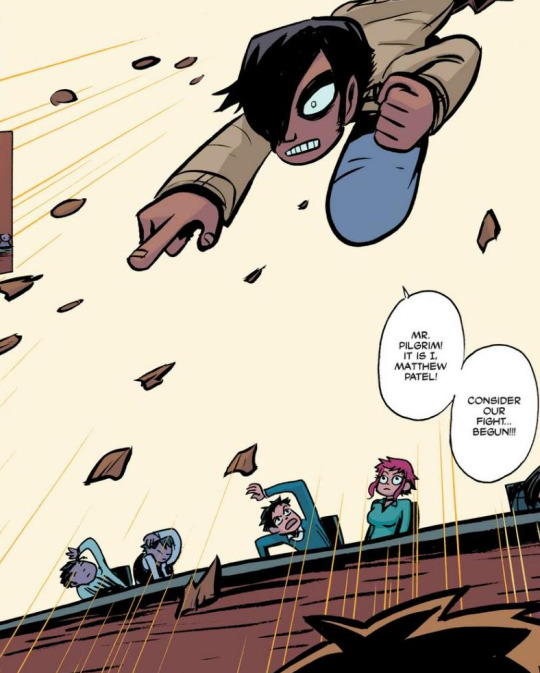
And it’s here, at the very end of the comic the series main premise finally kicks in and the world takes it’s true shape. It’s a world where an indie comedy about a mess of a being putting his life together after finding his dream girl.. also has said mess being forced to get into fist fights with wizards, movie stars, vegans, half-ninjas, twin roboticists and a katana wielding douchenozzle record exec in order to continue to have the right to date his girlfriend.
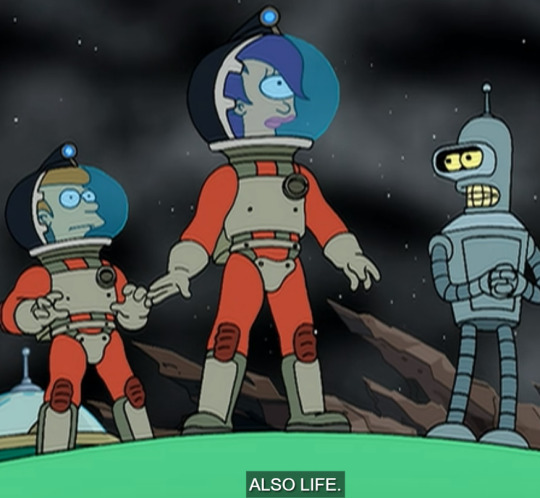
It’s where the series charm comes from and really what made it a huge sucess so it’s no suprise this volume perks up immensley for the climax. I’ll get more into it’s pacing problem at the end. For now it’s fight time and as we find out in a hilarious and awesome turn.. Scott is the best fighter in toronto.. which just makes me REALLLY want a Scott Pilgrim version of letterkenny. I mean who wouldn’t want to see wayne fight some guy who can turn his hands into dragons or see Squireely Dan do E.Honda’s hand slap move from streetfighter or see the skids all fuse into one mega emo. It’s just.. the possiblities are as endless as they are wonderous and I want this now.
But yeah as Patel is both the first boss and Scott’s first real opponent Scott.. handles him really easily. This was by design as O’Malley wanted a shonen progression to the fights.. and honestly it’s a great way to do things. Since the fights are styled after shonen and video games, and both have power based progression in bad guys and threats, it just made sense. Patel.. is just pathetic even with his magic powers, and his habit of sending letters and emails just pounds it in. Though he is right to be a bit pissed Scott didn’t read a letter he hand delivered in a snowstorm. That’s just a tad rude.
Mid-Fight, Scott, now he knows the whole evil ex boyfriend thing, wonders what Matt and Ramona’s past is and while Matthew refuses to tell.. Ramona spills easily. It was midddle school, all the jocks wanted her for whatever reason, likely because from experince in high school, guys really like indie girls. Matthew was the only non-white non jock, so they teamed up and with her strength and his mystic powers they beat them.. but since his use had dried up, she flipped him off and left. Matthew dosen’t take this well and summons demon hipster chicks to fight while Scott and co, minus ramona, fight back with a finger gun routine and block his fire balls before propelling Scott into matthew somehow, and landing the KO Evil Exes Left: 6 Matthew bursts into coins though fun fact, O’Malley says the Exes all respawned back at home afterwords and learned their lesson. With Pattel I genuinely don’t think he did... but clearly given his penchant for formality what with the letters and emails, he probably felt it’d break protocol to attack before the rest were done. He probably jsut formed a hipster emo band and found more sucess using his magic for that instead and just forgot about the whole thing. Could be wrong but that’s what i’m going with. So Scott asks Ramona to go out with him then make out with him, both of which she says yes to. Nice one scotty boy. Ramona then explains the whole evil exes thing: He’ll have to defeat each one as they come after him, and while Scott wonders if they’ll come one at a time Ramona’s not sure. As time will bear out, Scott is MOSTLY correct as most exes take him one on one, with the exception of the twins. But since as I said earlier the twins are basically one person, and as we’ll find out by choice, so it’s an exception. Plus their the last step before the final boss, so by that token it’s a bit fairer to have the penultimate boss get an unfair advantage. Scott is fine with that, he and Ramona share another moment and a kiss.. but Scott makes the mistake of asking if gideon is one and Ramona’s head starts glowing with her dodging the subject, though still going out with SCott and him worried.. it just feels.. off. not a bad ending but the only one of the series three cliffhanger endings that just dosen’t work for me, especailly since it is a bit before the Gideon mystery really picks up steam again. But with that we close this chapter

FINAL THOUGHTS:
Precious Little Life is a decent start to the story. While Scott is loathsome at first, he’s still a compelling character and does get more likeable as things go, the humor when it is there shines and is one of the series best assets and while the fight is short and only at the end, it is oh so glorious especailly in cover with the impacts taking cues from the movie. It’s a good intro to Scott’s world and ther’es a reason the movie adapts this book the closest as it sets up the cast and premise well, with only Stephen Stiles feeling a bit off and ONLY for the first few chapters. The volume is only really held back by it’s pacing, as before Scott runs into ramona in his dream the story feels a bit sluggish as we’re just watching some douche date a high school kid. While it is necessary to set up the world, it just dosen’t have the snappy pacing the series would be known for and that makes the rest of the series more charming. it’s nto BAD.. but it’s not FANTASTIC like the series would become. What keeps it from being bad is simple: These aren’t general badness signs but more just O’Malley coming into his owna nd getitng better and better as the book goes, to the point that by the next book the pacing is much better and by book 3 onwards he has it down pat. Overall not a BAD volume but certaionly the weakest of the bunch.. which given it’s still really good says something about the ride we’re in for. I’ll be back sometime in the future, likely january. Yup i’m taking on YET ANOTHER PROJECT. but since this one, while clearly exausting and time consuimg, is much shorter in overall length, and i’m still proritizing the three I have running over this, I think i’ll be just fine. Until next time, have a happy holiday.
#scott pilgrim#scott pilgrims precious little life#ramona flowers#wallace wells#kim pine#stephen styles#knives chau#neil nordgraf#julie powers#matthew pattel#gideon#crash and the boys#reviews#comics#oni press#micheal comereau#stacey pilgrim
26 notes
·
View notes
Text
TIMELINE UPDATE!
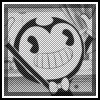
OOC. look! devilswinging is updating again! i may not actively post for now (because overall muse is still dead), but i wanted to update everyone on some timeline revisions i’ve done since personally playing BATIM and reading Dreams Come to Life. everything’s gonna be under a cut so that it doesn’t clog up anyone’s dashboard. i wanted to update everyone because if i do come back to tumblr rp, i’ll immediately be jumping into this revised timeline instead of keeping the old one
THE MOST MAJOR UPDATE IS THAT ISA/BAST NO LONGER EXISTS. i know, shocker. the Ink Demon is in fact Bebe now. instead of having two different Bendys, we’re just gonna keep it at it being the same demon, just horrifically traumatized! mostly i did this change bc of reading through the novel. it just made more sense to me for the once-friendly and peppy yet abused demon to eventually snap and drag everyone down with him in vain attempt to hold the studio up on his own after both of his creators ditched the studio.
secondly! Joey is a bitch! yep, you heard it here, i’ve officially joined the canon bandwagon of Joseph Drewseph Is A Huge Dick. with the erasure of Isa as a character, having Joey be nice just didn’t work out anymore. somebody had to be the reason Henry left. somebody had to be the reason Bendy snapped. and (un)fortunately Joey was the only one who fit the bill. so he’s bitch, like canonically. (yes, this does mean that joey will be removed from @builtmachine. because unfortunately i cannot actively write abusive/asshole characters as seen by me immediately butchering isa/bast from bad guy to good guy)
last major point! the Inkverse mostly happened because Bendy was attempting to hold up the studio on his own. of course the Ink has a mind of its own, somewhat, but the majority of it is still very much a hell and prison of Bendy’s own making.
the full timeline is this!
Henry and Joey are both born. [1901]
Joey Drew Studios is founded [1920]
Bendy and Co are made around, even if they haven't shown up in the cartoon yet. [1925]
Henry gets sick of the studio and loses hope in it and yadda yadda and quits. [1930]
Bendy begins to destabilize and become monstrous. Thomas locks him in the infirmary under Joey's orders. Everyone still there is forced to ignore his cries. [1930-1934].
Bendy Land begins construction. Financial decline for the studio. [1944]
Studio is placed under investigation for hazardous environments, missing employees, harassment, and excessive backpay. Company also bankrupts. [1946]
Buddy finds Bendy and frees him. Bad idea! [1946]
Snooks, Spitner and Snooks sues JDS for mismanaging workers. The studio closed 12 days later. [1959]
Joey leaves the studio [1959]
INKVERSE!! [1959-1972]
Thomas and Allison begin to die, Boris and Alice sacrifice themselves to save them, making Tom and Allison Angel. [1960]
The Butcher Gang become one set of their corrupted copies, making the indistinguishable from the rest. [1961]
Henry returns to the studio. [1963]
Henry is trapped in the studio. [1963-1972]
Henry manages to calm Bendy (skipping the idea that Bendy becomes trapped in "The End") and leaves the studio with him. [1972]
TL;DR: the Inkverse is ultimately caused by Henry leaving, Bendy destabilized and being publicly abused by JDS and causing at least some of the environmental hazards, and the Inkverse being fully realized once Joey leaves and Bendy has no one left to “support” him.
other minor points that may not be timeline specific but are in fact major plot revisions!
THE CYCLE IS DEFINITELY NOT A TIME LOOP. i’m sorry, i still detest legit time loops as a narrative point. the Cycle for devilswinging’s timeline is simply a cycle of life and death for Henry; considering just about EVERYTHING within the Inkverse is made of Bebe’s ink, it makes sense that every time Henry died and was brought back, the events could - and would - replay over and over. long story short, once Henry actually beats Bebeast with The End, that’s it. it’s over. they can leave. he can take him out of the studio.
the whole universe is now a Who Framed Roger Rabbit-esque Toon Town universe, taking inspiration and pieces from multiple sources on an OOC level - mostly from WFRR and Animaniacs + Tiny Toons. long story short that just about everyone knows: humans and toons live on the same plane and coexist.
but vee, why do the JDS toons have to hide away then if this is a Toon Town universe? THEY’RE FREAKS. explaining that further: they were created by means different from other studios’ toons. putting it simply, most toons (ex: the Warner Siblings) literally jump off the page from the love and inspiration put into them by their creators and studios as a whole. the JDS toons... didn’t get that, considering it was likely only Henry who truly loved them. so they had to be brought to life by other means... aka the Ink Machine, which made them demon-toons instead of true toons; JDS had no choice but to hide them away because if they got caught displaying their demonic sides, there’d be trouble. i mean there’s trouble regardless, but yeah.
i think that’s about it for the timeline/universe revisions i’ve made. but please please PLEASE message or send me an ask if you guys have questions about the timeline/universe or want to know more details! you can send a message here or over at @cinnanyan (yes i changed my main’s username for now)
7 notes
·
View notes
Note
Hi, betts!! I always love reading your writing. Do you have any favorite writing exercises for developing consistent, interesting characters?
i’ve written a little bit about characterization before –
developing original characters
describing minor characters
some writing exercises for fanfic
making character stars
character star follow up
there are probably more but those are the ones that come to mind
– but in terms of writing exercises, my go-to, as i’ve mentioned a few times before, is actor interviews. i watch interviews with famous people all the time. i’m addicted to the “personal life” section of every wikipedia page. instagram stories from my faves are my absolute kryptonite. i’ve always hated how i obsess over celebrities, but it’s become a major creative drive for me.
i build characters based on private traits of people i know, and public traits of people i don’t know, and i allow the narrative to fill in the gaps, so that i’m learning about a character as i’m writing them. it keeps me curious and invested in the story i’m telling.
i’m writing this one character right now, and he’s kind of based on a certain actor who is known for his, uh, physique (as actors tend to be). and part of the inspiration for this character is that i thought – what if you had a crush on this guy, and found out how much work and focus it actually takes to look like that? and how his identity has maybe formed around his appearance in this way? and then i thought, okay well what if he’s not an actor, and doesn’t really have an occupational reason to keep up that kind of appearance? what if he’s just some dude in ohio? why would a dude in suburbia have a drive to maintain that over-the-top physique? and what would it be like to have fallen in love with him from afar, only to find out he spends his life eating boiled chicken, working out, and playing world of warcraft?
forcing something impossible into something real is always an inspiration to me. if i can put an unattainable ideal, in this case male beauty, into this gritty real space of 2010 southwest ohio, i now have a framework to make this character more complicated. so, completely by accident, i’ve given him my dad’s bad spending habits and now he’s $20k in credit card debt, forced under the thumb of his rich fiance, who will not marry him until he pays it down. more conflict.
i don’t care much about intelligence in characters, but i care about what they think of their own intelligence. in this guy’s case, he thinks he’s stupid. he’s not, really, but his self-perception is a key to something deeper. why does he think he’s stupid? what led him to develop this belief? his foster daughter, the main character, wants him to homeschool her. previously, he has given her everything, but his self-esteem problems regarding his intelligence overrides his desire to appease her. she is not used to him denying her, or moreover asserting boundaries. more conflict.
he may not be stupid, but he is extremely impressionable, which leads me to his major flaw: he does not have opinions. his perspective of reality is so broken that he does not allow himself to stand firmly on any ground, which will eventually lead him into undesirable, cult-like places, particularly becoming a disciple of his foster daughter, who believes she is possessed by an all-powerful archangel. yet more conflict.
and that made me wonder – what kind of environment shaped a guy like this? a guy who seems hypermasculine and strong but is actually a soft marshmallow who kinda hates himself? obviously, a bad one. so then i developed his parents. the house he grew up in (hoarders). his siblings (2nd of 4). his upbringing (abuse). i go back further and further, until i know him as well as i know my best friends. now all my heavy lifting is done. he guides his own actions on the page. i no longer have to ask myself what should happen, but really, what would this specific character do in this specific situation? that’s all i do – i ask questions.
and of course, since nothing is written in a vacuum, and moreover i am at an artist residency where i have to sound fancy whenever i talk about stuff, i’m interested in how this character can be a commentary on something. this novel is very openly a lolita reversal, road trip americana and everything. i’m entering the story with the question – what would lolita be like if dolores haze had all the power? if she had the wit, intellect, and lack of narrative reliability as humbert humbert? how might a teenage girl completely overpower a grown man? who would that girl have to be?
i know that’s a lot about my process, but i don’t tend to do a lot of discrete exercises. developing good characters is a practice in allowing yourself to observe people neutrally and without judgment, isolate certain traits, plunk them into fictional beasts, and shove them into tense situations to see who they become. you have to stay curious and open, ask hard questions and follow the answers where they lead you. keep a log of interesting things people say and do. pinpoint what you love most about your best friend and hated most about your ex. consider how you would get along with your parents if you were the same age as them. try to see people in as many different lights as you can.
66 notes
·
View notes
Text
Kamen Rider Ex-Aid Episodes 16-30
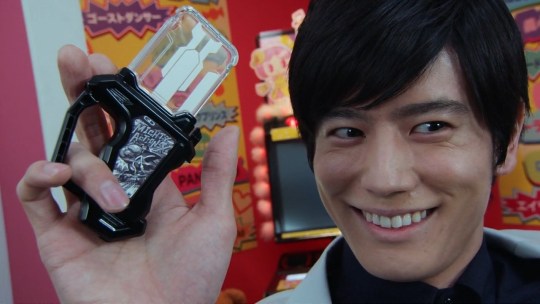
Insert COIN to Continue.
If Ex-Aid hadn't clicked with me in its first 15 episodes, it's with much joy that I come here to say that I think I finally get this show and I'm here for it!
Yes, I still have quite a few of problems, and a lot of the complaints I had in my previous post are still present in here, but my enjoyment of the show has only been growing more and more with each new episode I watch to the point where now only very few aspects of it still annoy me really hard and I can let go of things more easily like, for example, the weird dialogue and the comedy style that while are still aspects that I don't like but that now I can get past that without being bothered.
Honestly, what bothers me the most is that I didn't know the show had such a clear break into two parts and that I divided the episodes for the reviews in a way that will make a bit weird to talk about, especially in this post. I didn't expect episodes 1 through 23 would end up being a big arc, with episodes 24 onward being kind of a different thing, a step-up from the previous arc. But oh well...
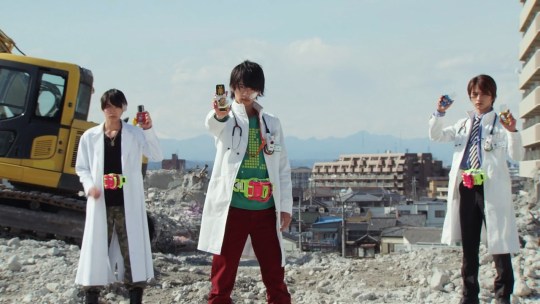
Since these episodes were clearly divided into two separate arcs I'll do the same here and comment on them separately.
This first part, going from episodes 16 to 23, are a bit weird to comment on because even inside them there's also a mini division we can make, episodes 16, 18, 19 and 20 are like a mini-arc to give Brave and Snipe power-ups while 21, 22, and 23 have more like an end game plot going on, and episode 17 is kinda just hanging around there, a bit out of place that usually would be considered a filler but that introduces a character that is used later on so while we can't completely disregard that episode we also can't really put it in the same basket as the others.
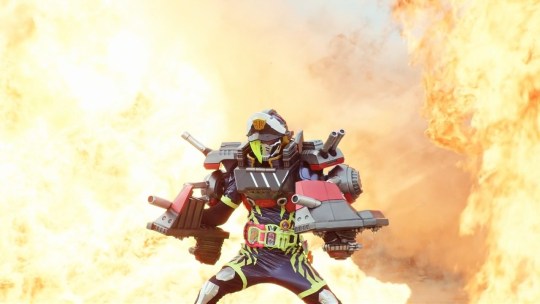
The first portion is the weakest of this whole section, being completely honest I don't remember much about it, I know Brave and Snipe get their asses kicked and they lose his gashats and that was pretty cathartic, but then Genm did his thing again and gave them Level 50 power-ups and I was a bit disappointed, not really in aesthetic levels or powers, like I don't care for Snipe's but I love how Brave looks and I think is really cool that he can command a troop of minions, my biggest problem is that the power-up is in one of those double gashats with that ugly circle thing and they have to share it but the division isn't really fair since Snipe has been keeping it for way more time than Brave did. But oh well.
Oh also during this part my hate for Kuroto was constantly raising, I really despise this man and whenever someone wipes the floor with him is like I'm having an overdose of serotonin because he's an awful human being and that's what he deserves and seeing him being fucked up brings me a lot of joy.

The mini-arc of episodes 21 to 23 is when things start to get interesting as we see the plot unveiling mysteries and the gears grinding in incredible speed making these three episodes feel like the end of a season. Now, as interesting and exciting that it was to watch this climax payout I do have some problems here. My biggest one is that, once again, they made Emu WAY too special, now he's not just a doctor, a genius gamer, and patient 0 from the game illness, but he's also the reason why Kuroto is like this nowadays, and different from what we thought he's been incubating this virus since he was a little kid because Kuroto is such a shit human being that he sent an infected game to a kid because apparently, he thinks only him can be a game developer in this world and come up with ideas for games. And yes, this is very in-character, Dan Kuroto would really do stuff like this, is the fact that they make so many things focused on a single person that bothers me.
Another thing I have a problem here, although it's a much smaller one if compared to my previous point is just how convenient it was for the show to put a way to reprogram the virus in Kiriya's computer. I think my problem here is just how easy they got the information, you know? They knew from that detective that Kiriya was digging up something and Hiiro decides to look for information and in the first place he looks he just happens to find his computer and the files in his research were there. Again, it's a minor thing, but I felt like I had to comment on this.
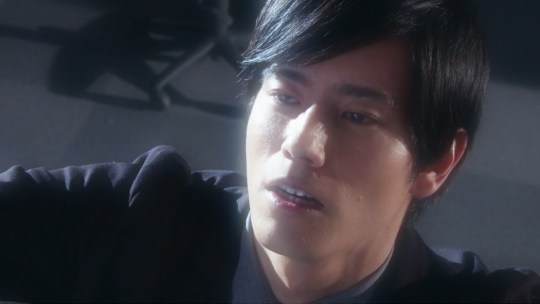
One thing that I really enjoyed in this mini-arc was Kuroto's plan to avoid the Ministry and still get data in his hands by infecting himself with the virus to appeal to Emu's emotions. Again, a very in-character decision and the way it played out was very fun even though it was pretty clear he allowed himself to be caught seeing how easy it was for them. The way things escalated leading to his death was also pretty good, it's a bit annoying that his death gets reverted only a few episodes later, for a show that is constantly talking about doctors dealing with death having a death be reversed is a bit counter-intuitive.
As a result of this conflict, we get Ex-Aid's Level 99 power-up, and while it's cool that is a gashat he made it himself and that he used Kiriya's driver after his was fried up by Genm, holy jesus how ugly is this thing. It's so huge and bulky most of the scenes with him moving have to be done in CGI because that looks like hell to walk on wearing it. This just isn't the ugliest power-up of this season because Snipe still has the worst designs, but oh gosh.
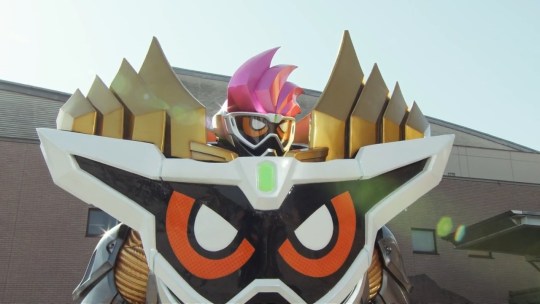
After episode 23 we enter in the Kamen Rider Chronicle arc, where being led by Parad they gather data from the missing games by reviving Graphite and brainwashing Poppy, and Ex-Aid becomes a light novel with a battle royale/survival game that actually kills people when they get a game over (or upload them to the cloud and erase their physical bodies apparently because now they're saying those people can be revived).
Attempts of joke aside, while it's not anything new that they're doing here I do like how they implemented the concept in the story. It's pretty cool having regular people acting up as the players while the Riders we follow are like special NPCs that drop rare items when defeated, it's a fun gimmick and it's also a way to the villains to put another obstacle to the riders without having to do much.

I think what I liked the most in this plot was the mini-arc they had for Poppy, up until this point I didn't really have a strong opinion on her but what they had with her in these episodes was pretty cool. To begin they gave her a pretty dope song, at first I questioned what they were trying to do there but when we get to know that her whole singing scene was part of a brainwashing process it turns things really interesting. But is the journey of her freeing herself from this brainwash that really does it for me, when she starts remembering memories from the person that she took over she gets in this existential crisis and it gave us some great moments, I really like that scene in episode 28 when she's there trying to tell everyone AND herself that humans and bugsters are enemies and Emu puts himself in the line kinda with a wake-up call for her, it was pretty awesome. I feel like she also got way more agency after the events in that episode and I hope they keep that with her. Oh, we also got Kamen Rider Poppy which wasn't a thing I necessarily needed, but that was still pretty cool.
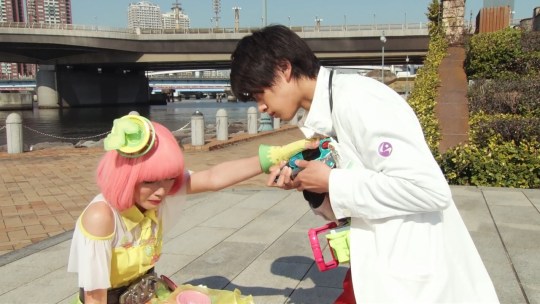
But because not everything can be flowers I have two major issues for this part as well, the two are things that I already mentioned so I won't take too long with them. The first one is obviously the "making Emu too special" thing since it gets established that Parad is the bugster that Emu incubated for all those years and that Parad is actually Emu's "second personality". Again, it's a cool concept, and there's one episode in which Parad gets control of Emu's body and they have a fight between each other while in Ex-Aid's Level 20 form and it was cool as heck, is just the fact that they keep adding layers to Emu like he's the center of the entire universe that makes me feel kinda iffy about it.
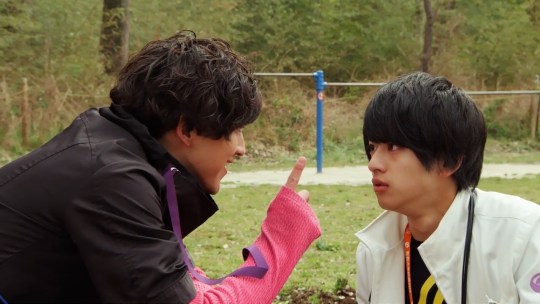
The second aspect I don't like is the reversibility of death. I get that this is a show for kids so they would come up with a way to bring everyone that died in Kamen Rider Chronicle because this doesn't seem like the type of show that would just obliterate a lot of people out of existence like that, my problem is with bringing back characters that have some sort of impact with the characters. Yeah, so far we only had Kuroto and he's back but not really since now he's a bugster and Poppy can keep him under control with her drive, though let's be honest this won't last too long, but they're raising the possibility of bringing Hiiro's girlfriend back and I'm sure they would try to bring Kiriya back too and is this thing that I feel like it goes against some of the messages this show is trying to pass to his main character. Emu is constantly facing death and as a Doctor he will face it many times in different contexts and part of the process for him to learn how to deal with this he needs to feel the effects of mourning for those who passed away, but when you bring people back from that while it doesn't revert what he went through makes it feel like death isn't as serious. This is a thing Rider likes to do a lot honestly, I mean look at Ghost, and it never sat with me well, but I feel like in this season in especial, as I mentioned, it's very counter-intuitive.
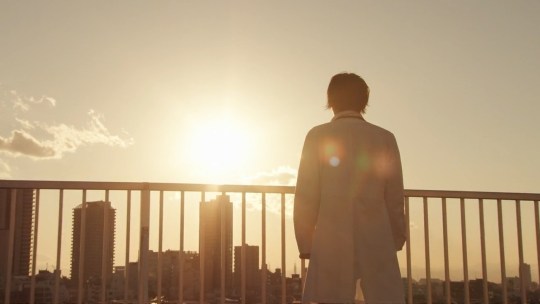
And I believe that's all I have to say for now. I feel like I'm way too repetitive, and that's a problem I should work on, but I have to say this again, I'm still having my problems with Ex-Aid but these problems aren't cutting down my enjoyment of the show and I'm really excited to see how all of this will come up together in the end. If you have anything to say about my comments or these episodes please let me know in the comments, I'll be very happy to have other people insight into this show. Stay healthy, stay safe, never stop resisting, thank you so so much for reading and until the next time. See you in the next game!
2 notes
·
View notes